COLLABORATE TO INNOVATE: ENABLING CITIZEN-CENTRED CARE
PROGRAMME
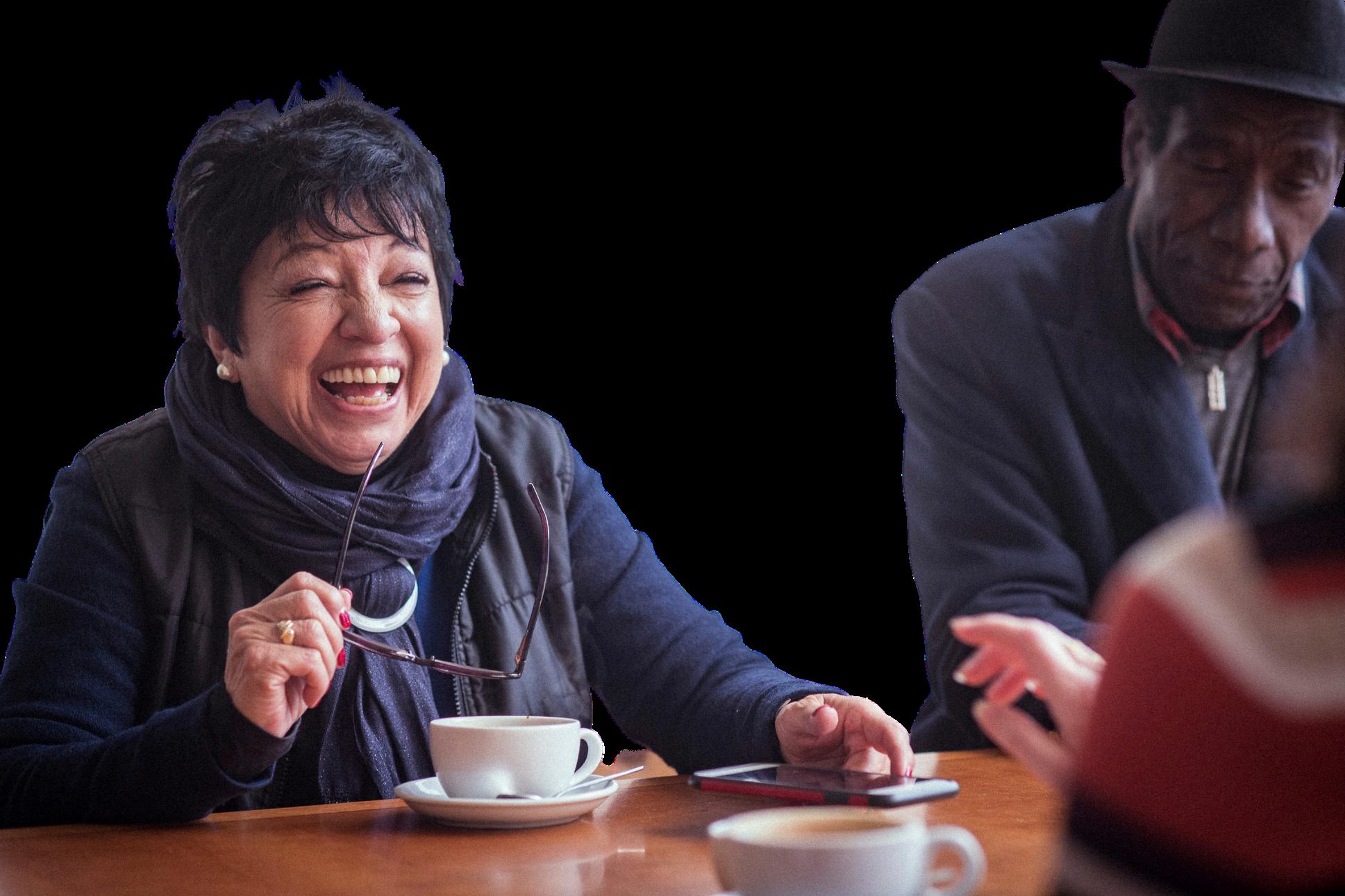


Welcome to the Collaborate to Innovate: Enabling Citizen-Centred Care conference!
We are delighted to welcome you to our annual conference 2023, celebrating the transformative power of collaborative research and innovation to shape the future of health and social care in our region
Today’s event is co-hosted by UEA Health and Social Care Partners and UEA Citizens Academy
We aim to foster an inclusive research environment that nurtures innovative ideas and empowers you to turn them into reality. Through engaging sessions, interactive workshops, and thoughtprovoking discussions, we will delve into the intersection of research and innovation and showcase how we can place citizens at the heart of our efforts to drive improvement and meet population health needs in our region.
By collaborating with like-minded individuals and drawing upon the wisdom and experiences of our guest speakers, we hope you will gain invaluable insights and inspiration
Throughout this event, you will have the opportunity to connect with leading researchers, experienced facilitators, and passionate advocates of citizen engagement. Together, we will harness the power of diverse perspectives to co-create research proposals that truly address the needs and aspirations of the communities we serve.
We invite you to take full advantage of the networking opportunities and extended discussions that this conference provides. Embrace the chance to forge meaningful collaborations, exchange ideas, and build lasting connections with fellow attendees.
On behalf of UEA Health and Social Care Partners and UEA Citizens Academy, we extend our warmest welcome to all participants. Let us embark on this journey of collaboration and innovation together We hope you enjoy the event.
Together, we can make a difference.
Carrie Jackson and Caitlin Notley

Join the conversation! Join us in tweeting about today's conference using the hashtag #CollaborateToInnovate - tag us and we'll share your tweet with our followers. Follow us on Twitter @UEAHSCP @UeaCitizenAcad
Today’s programme
8.30am - 9.30am
Registration, Refreshments
9.30am - 9.50am
Conference Opening Address
With Professor Charles ffrench-Constant, Pro-Vice Chancellor, Faculty of Medicine and Health Sciences, UEA
Associate Professor Carrie Jackson, Research Director, UEA Health and Social Care Partners and Professor Caitlin Notley, Director, UEA Citizens Academy
9.50am -10.15am
Keynote Address from Sir Michael Marmot (pre-recorded)
Title: Tackling Health Inequalities: Science and Community Engagement
10.15am - 10.45am
Panel Discussion of Keynote Address
Facilitated by Phil Ward, Director Eastern Academic Research Consortium
10.45am - 11am
Coffee & Comfort Break
11am - 12.30pm
Showcasing the Impact of Partnership Funded Research
This showcase enables delegates to hear from practitioners about the impact of research projects and scholarships funded by the partnership in 2022-2023 Delegates will have the opportunity to sign up to workshops ahead of the conference so that they can attend the themes of most interest to them from work undertaken in the field of population health management, digital inclusion and transformation and child and adult mental health
12.30pm - 1.30pm
Lunchtime Networking Event
Poster Exhibition and Information Exchange Stalls
The lunchtime networking event enables delegates to visit a research poster exhibition evidencing the impact of projects on patient and community health and wellbeing, improvements in health and care services and innovations in health technology. There will be a range of information exchange stalls from organisations showcasing the work they undertake across the region.
1.30pm - 2.30pm
Co-production Workshops: Shaping Research Together focused on what matters (First round)
We are offering a choice of six workshops that share case study examples of good practice in designing research or service improvements in partnership with citizens Delegates will have the opportunity to choose two workshops to attend
2.30pm - 2.50pm
Coffee & Comfort Break
2.50pm - 3.50pm
Co-production Workshops: Shaping Research Together focused on what matters (Second round)
We are offering a choice of six workshops that share case study examples of good practice in designing research or service improvements in partnership with citizens Delegates will have the opportunity to choose two workshops to attend 4pm - 5pm
Drinks Reception and Networking
Summary observations of the day with Phil Ward, plus live graphic illustration from Rebecca Osborne and a spoken word poem.
Conference Opening Address
With Associate Professor Carrie Jackson, Research Director UEA Health and Social Care Partners and Professor Caitlin Notley, Director, Citizens

Carrie Jackson brings a strong track record of multidisciplinary practiceled research, innovation, curriculum design and workforce development from diverse settings As an embedded practice developer, she is passionate about working with people to co-produce solutions to support service improvement focused on what matters to people to enhance quality of life and wellbeing

e Director of the Citizens Academy. As a social orked with patients, carers and members of the public throughout her research career Caitlin's research focuses on addictive behaviours, currently tobacco addiction and harm reduction approaches. In all of Caitlin's work, people who smoke have been central to informing study design, conduct and dissemination. Working to lead the Citizens Academy was a natural progression for Caitlin, who is deeply committed to the values that drive the Citizens Academy

Welcome Remarks from Sir Michael Marmot (pre-recorded)
Title: ‘Tackling Health Inequalities: Science and Community Engagement’
Sir Michael Marmot has been Professor of Epidemiology at University College London since 1985 He is the author of The Health Gap: the challenge of an unequal world (Bloomsbury: 2015), and Status Syndrome: how your place on the social gradient directly affects your health (Bloomsbury: 2004)
Professor Marmot is the Advisor to the WHO Director-General, on social determinants of health, in the new WHO Division of Healthier Populations; Distinguished Visiting Professor at Chinese University of Hong Kong (2019-), and co-Director of the of the CUHK Institute of Health Equity. He is the recipient of the WHO Global Hero Award; the Harvard Lown Professorship (2014-2017); the Prince Mahidol Award for Public Health (2015), and 20 honorary doctorates. Marmot has led research groups on health inequalities for nearly 50 years
Conference Keynote
Panel Discussion of Keynote Address
Facilitated by Phil Ward, Director Eastern Academic Research
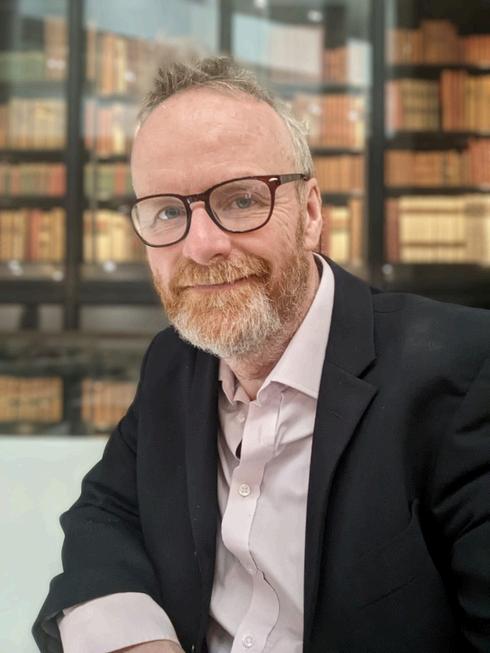
Phil Ward is Director of Eastern Arc, a regional research consortium comprising the universities of East Anglia, Essex and Kent. The consortium works to support collaborations across the greater southeast, as well as advocating on behalf of the region. He was previously Deputy Director of Research Services at Kent, and before then worked for the Arts and Humanities Research Council (AHRC). He writes regularly for a range of publications, and runs the Research Fundermentals website. He has just bli h d id for early career researchers on getting research ored book with Australian colleagues.

Kevin Daniels is Professor of Organizational Behaviour in Norwich Business School at UEA He has led multiple research projects concerned with workplace health, safety and wellbeing He is a Fellow of the British Psychological Society, a Fellow of the Academy of Social Sciences and a Fellow of the Royal Society of Arts In 2022, he became the recipient of a prestigious research award from the Humboldt Foundation of Germany

Stuart Lines has been a Director of Public Health (DPH) for over 5 years and is currently the interim DPH with Norfolk County Council Prior to this he was DPH for Enfield Council and then for the three East Berkshire councils.
Before training in public health Stuart worked in environmental health, mainly helping address health inequalities caused by poor housing conditions. He has a professional interest in enhancing life opportunities for children and young people and provides individual mentoring for charitable organisations

Colin Howey is from a working-class background and has experienced a PTSD-afflicted childhood that has left a challenging legacy throughout his life, including episodes of depression, suicidal ideation, and an eating disorder.
He takes pride in actively using these experiences to make positive changes and improvements. Due to his lived experience of health inequalities, Colin has been invited to join the panel
Colin works for MensCraft, a Norfolk-based charity The aim of MensCraft is to nurture and empower gentler men, encouraging them to be kinder to themselves and others Through various activities and
activism, MensCraft brings men together to build friendships, connections, and a sense of belonging In his role, Colin promotes a culture of lifestyle medicine, recognizing that happier and healthier men contribute to better relationships as brothers, partners, fathers, sons, colleagues, and friends.
Colin is committed to making a positive impact on men ' s lives and advocating for mental and emotional well-being. Through his personal experiences and dedication, he inspires others and contributes to creating a more inclusive and supportive society
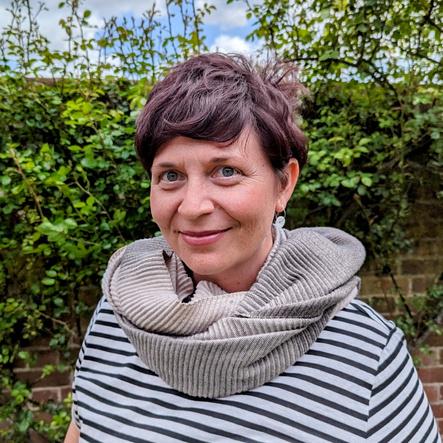
Natalie Jode is Executive Director at Creative Arts East, an arts and development charity working in rural communities across Norfolk, Suffolk, and Cambridgeshire. Programmes include creative health workshops and afternoon performances for lonely and/or vulnerable older people, including those living with a dementia or other life limiting illness, and their carers. natalie@creativeartseast.co.uk
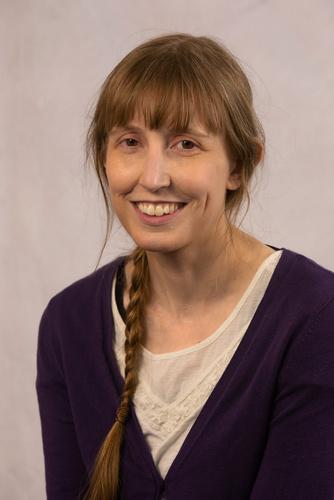
le is Strategic Head of Innovation and Growth at Community360, a charity based in Essex.
Having initially joined the organisation as a volunteer, she has worked for Community360 for over 17 years
She has specialised in developing programmes within place that target improving the sustainability of voluntary and community organisations and improving health and wellbeing outcomes for citizens.
Her work has included implementing a pilot Place Based Social Action project for enhancing a Dementia Friendly Community, developing Timebanking across Essex, supporting partners to establish new social prescribing programmes and building relationships between academic institutions and the voluntary sector
She has chaired the Delivery Board of the local strategic partnership, One Colchester and worked extensively within regional networks to develop collaborative working
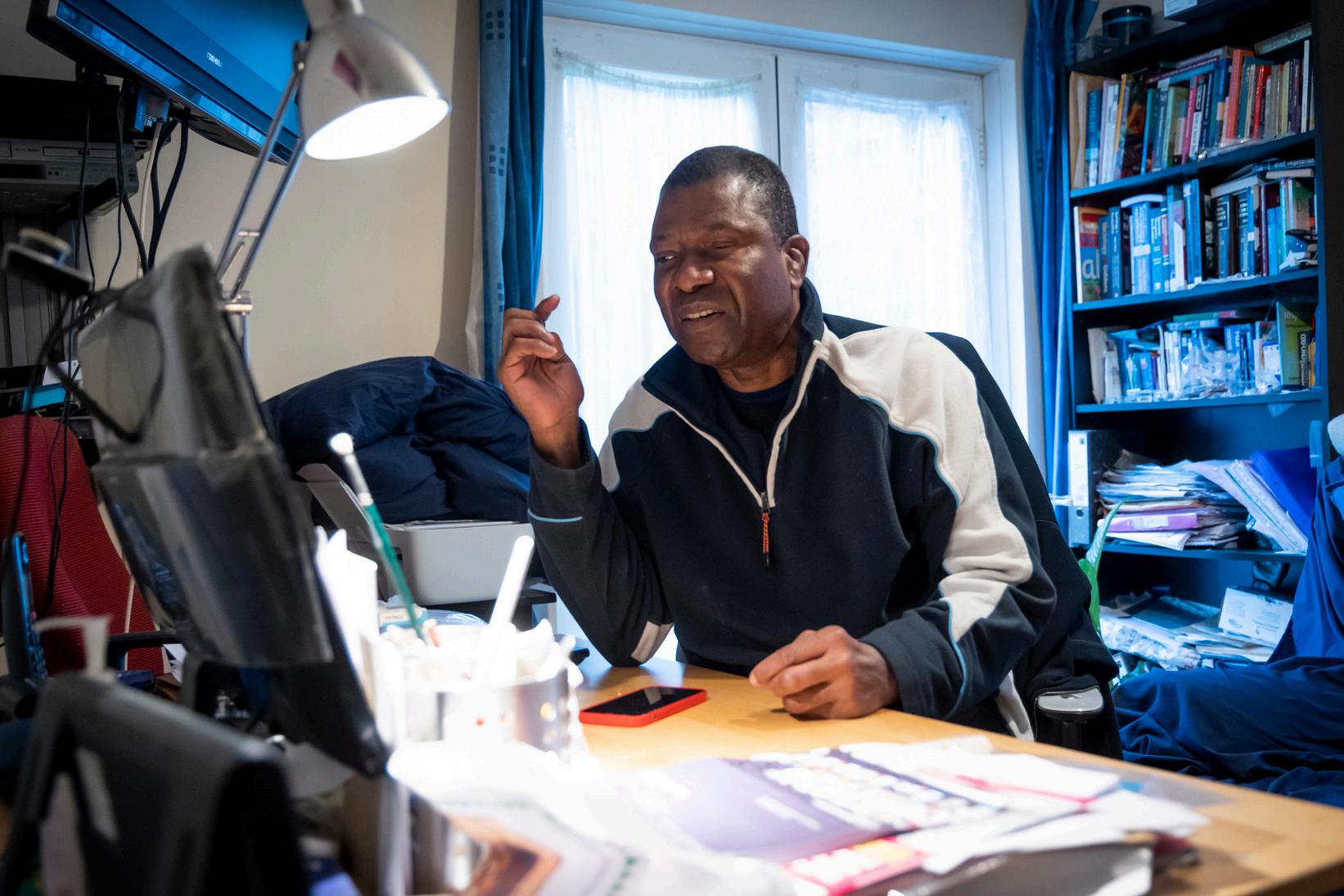
Project Showcase
The impact of partnership funded research.
Taking place from 11am - 12.30pm
This showcase enables delegates to hear from practitioners about the impact of research projects and scholarships funded by the partnership in 2022-2023.
Delegates will have the opportunity to sign up to workshops ahead of the conference so that they can attend the themes of most interest to them from work undertaken in the field of population health management, digital inclusion and transformation and child and adult mental health
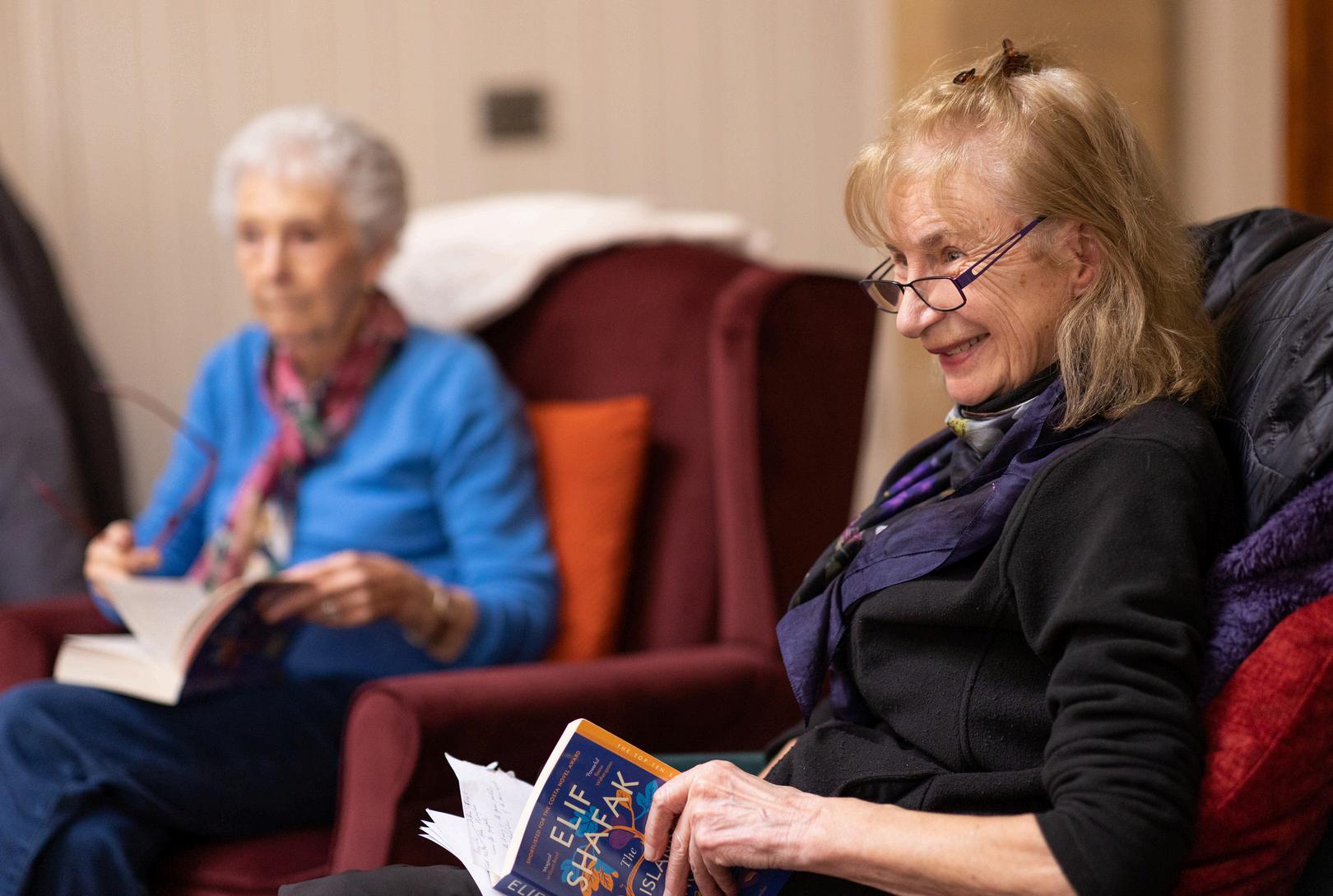
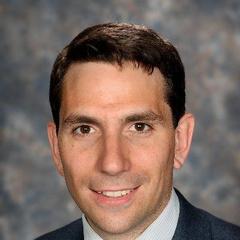
Session title: Social Care in Rheumatoid Arthritis (SOCRA): Linking regional data to improve the care for patients with rheumatoid arthritis
Presenter: Dr Max Yates
Time: 11 00am -11 40am
Room: Lecture Theatre
The SOCRA project was established to understand the logistical and ethical framework needed to link routinely collected social care resource use to participants within the Norfolk Arthritis Register (NOAR)
NOAR participants have consented to record data linkage and Section 251 consent which enables for such a project to process routinely collected healthcare data. A growing understanding of the importance of social care use by patients is of increasing research interest particularly among patients with rheumatoid arthritis with data showing a disability gap amongst those even with seemingly well controlled disease.
The siloing of social care data represents a logistical challenge to research trying to assess the social care burden of disease We carried out two work packages
The first was a survey of NOAR participants social care resource use, and the second was to meet with key stakeholders to understand the ethical and logistical framework to be able to understand the process of linking to routinely held social care data. Dr Yates talk will update those present of the outcome of these two work packages.
session #1
Parallel
1
Dr Yates is a Clinical Associate Professor, specialising in epidemiology of rheumatic diseases His PhD investigated risk factors for onset and progression amongst individuals diagnosed with polymyalgia rheumatica (PMR) and giant cell arteritis (GCA).
Dr Yates an active member of consortia and international groups including the UK Biobank Eye and Vision Consortium and the Outcome Measures in Rheumatology (OMERACT) working groups, the latter of which he is a co-chair for the PMR working group.
He runs the Specialised Academic Foundation Programme which represents the first step on the rung for those doctors in Integrated Academic Training
Dr Yates’ research interests are focussed on aetiological hypotheses using statistical models Current projects include investigating comorbidity in PMR, GCA and inflammatory polyarthritis and using retinal images to validate vascular disease states in these conditions.
He is also interested in the pathway management and care of people with rheumatic diseases and the use of electronic tools to improve process management, autonomy, and efficiency.
The availability of large datasets through the Norwich Epidemiology Centre, coupled with the support of such a team brings lends Norwich Medical School to be able to offer a range of both undergraduate and postgraduate research opportunities and I'd welcome informal email approaches to discuss suitable projects
Parallel session #2
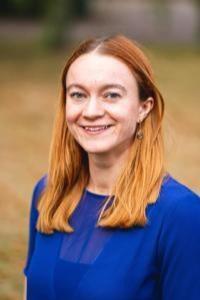
can
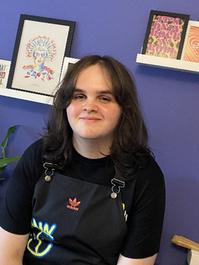
gy to support health behaviour eople with health complications of excess weight? The Technology tO Support ChAnge (TOSCA) study
Presenter: Dr Brioney Gee with Sydney Wylie
Time: 11 00am -11 40am
Room: Blue room (0 01)
The Healthy Futures Clinic at Norfolk and Norwich University Hospital was set up in 2022 to provide medical, dietary, exercise and psychological support to young people living with health complications linked to excess weight.
During their journey with the clinic, young people are encouraged to make behavioural changes to improve their health, such as increasing activity, changing dietary patterns and taking medication.
The TOSCA study aims to explore whether digital technology could be used to enhance the support offered by the clinic to help young people with these behavioural changes
In the study, clinical academics from NNUH and NSFT have been working together with health technology company LovedBy to run a series of focus groups and workshops with young people aged 10-16 (and family members) who attend the Healthy Futures Clinic
These sessions have focused on understanding the health priorities of
2
young people and their families, the barriers and facilitators to making behavioural changes, and on co-designing ways that technology could be used to support young people to make changes to achieve their health goals.
The presentation will give an overview of work completed so far, emerging findings and next steps.
Brioney Gee is Research Development Lead for Child, Family and Young People’s Services at Norfolk and Suffolk NHS Foundation Trust (NSFT)
Brioney is part of NSFT’s research development programme which aims to work alongside the Trust’s service-users, clinicians and the wider local community to co-design applied research projects to address real-world priorities
Brioney’s research focuses on the mental health needs of children and young people, and she has a particular interest in improving access to mental health support through approaches to intervention that sit outside of traditional NHS mental health service settings (for instance, through working in collaboration with schools and colleges, social care, and the voluntary sector, and through the use of digital approaches).
Brioney is presenting the TOSCA study on behalf of Dr Emma Webb, study lead, and the wider TOSCA team
At 16, Sydney Wylie has recently finished her GCSEs She is interested in how health behaviour change can support young people with their mental health as well as physical health
Outside of school, her passions include programming, music, and football She believes that apps like the one in development in this project are a great way to reach young people and encourage them to embrace positive changes.
Parallel session #3

Session title: Adopting digital 3D technologies to improve breast cancer management (BEAT)
Presenter: Ken Tam
Time: 11 00am -11 40am
Room: Green room (0 02)
This project explores innovative 3D design and printing applications to enhance breast cancer treatment, specifically in breast reconstruction surgery and the development of drug-eluting implants Accurate assessment of breast volume is critical in the preoperative planning process for breast reconstruction after mastectomy.
At the Norfolk and Norwich University Hospital (NNUH), 3D scanning was employed in this project to create customised 3D-printed moulds for the patient to improve breast volume measurement. Integrating 3D technologies into the current surgical workflow can
1) increase surgical precision and
2) reduce the number of surgical procedures, operational time in the theatre and the need for post-operative correction
Concurrently, we collaborated with James Paget University Hospital (JPUH) to develop flexible 3D implants for breast shaping and localised drug delivery in patients undergoing reconstruction This introduction of 3D technology signifies a paradigm shift in breast cancer management,
3
illustrating the importance of technological innovation in advancing healthcare solutions
Mr Ken Tam, a pharmacist registered in the UK, received his training at the University of East Anglia.
He initiated his PhD in 2018 under Prof. Sheng Qi's supervision in the Pharmacy department at University of East Anglia, specialising in the use of additive printing for fabricating personalised medications at the point of care
Ken has a strong passion for harnessing 3D printing technologies to enhance patient therapeutic outcomes
He is currently engaged in a collaborative project with the Norfolk and Norwich University Hospital, utilising 3D scanning and printing to optimise the workflow of breast reconstruction surgery
The project investigates further medical applications of 3D printing to benefit local hospitals, thereby improving physicians' workflows.
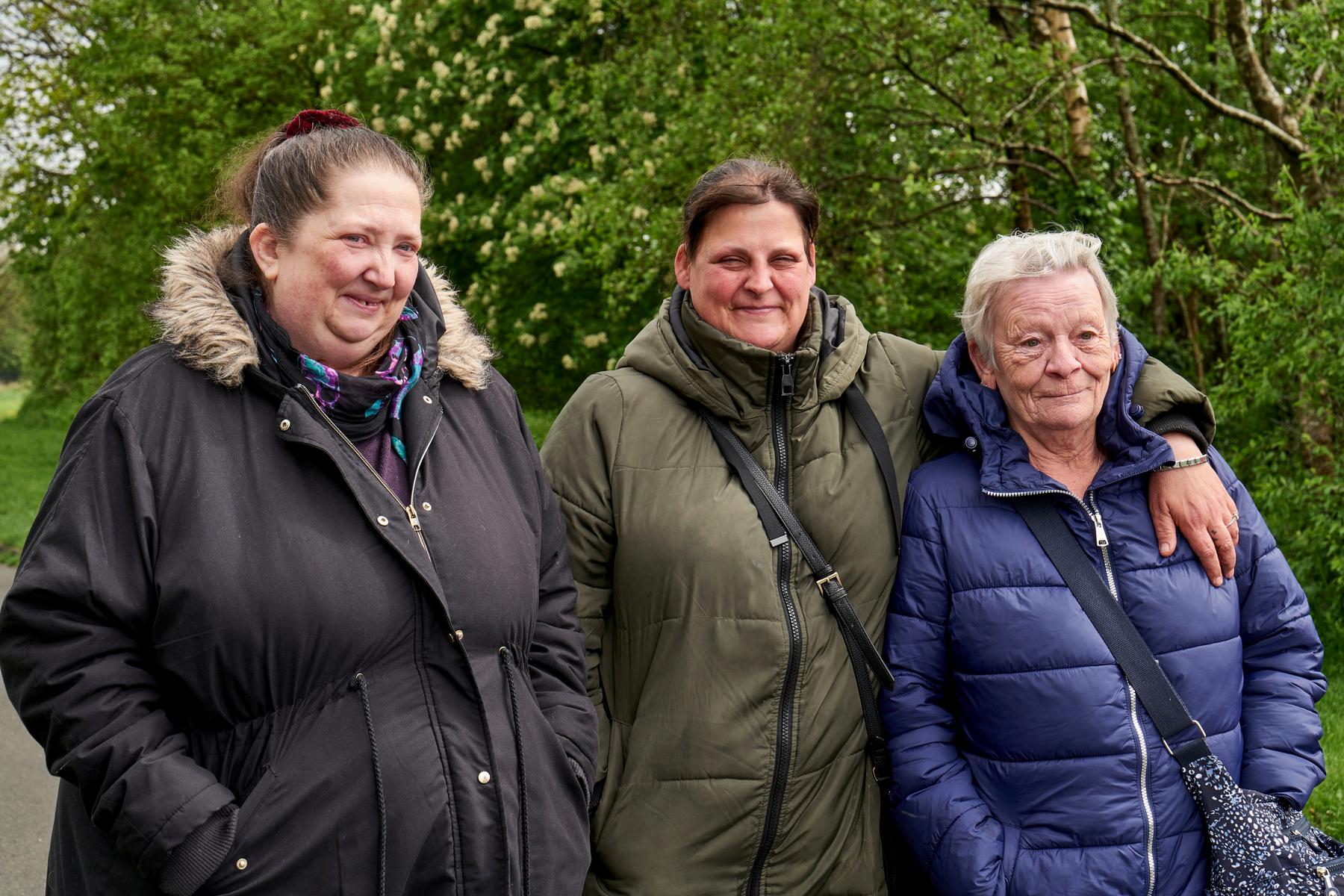
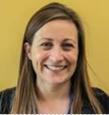
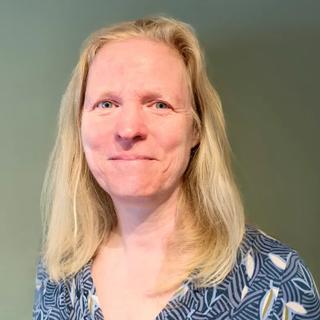
Session title: Supporting multiple behaviour change in communities of high socio-economic disadvantage: the CHarMINg project
Presenters: Anna Sweeting and Wendy Hardeman
Time: 11 00am -11 40am
Room: Yellow room (0 03)
People in affluent communities can expect to live on average 19 years longer in good health than people in low-income communities
This is largely due to behavioural risk factors, for instance, poor diet, sedentary lifestyle, and smoking. However, we don’t know how to support change in multiple behaviours.
The CHarMINg co-production project aimed to identify and co-produce promising approaches to support multiple behaviour change in lowincome communities.
We spoke with 42 people from multiple agencies (e g , local government, community organisations, NHS) and held group conversations with 36 people with lived experience of trying to make positive changes in difficult circumstances
Key messages were the need for holistic and person-centred behaviour change support rather than focusing on single behaviours, and offering more support in communities rather than health care settings.
Parallel session #4
4
Anna Sweeting is a Research Fellow for Norwich Institute of Healthy Ageing (NIHA) and leads the NIHA Co-Production Partnership
She is passionate about ensuring that the voices of those that are not always represented in research are heard and that communities are at the heart of the research the Institute does.
Recent work includes the CHarMINg project which explored multiple behaviour change in disadvantaged communities. Anna has been running a range of groups with different communities across the UK to explore eating behaviour and how we can design research projects better to make them more inclusive
Wendy Hardeman is Professor of Behavioural Science at the School of Health Sciences and Norwich Institute of Healthy Ageing, University of East Anglia
Her research focuses on how best to support people in making positive changes in behaviours such as healthy eating and moving more. Her research also evaluates whether programmes aimed at supporting behaviour change are effective, how they work and for whom and when.
Her recent work focuses on making research around behaviour change more relevant and meaningful to communities underrepresented in research, which could benefit the most from evidence-based behaviour change support

Session title: Title: Using Data Science to Improve Virtual Ward Care
Presenter: Mike Shemko
Time: 11 00am -11 40am
Room: Pink room (0 04)
Virtual wards are attracting additional government funding and viewed as a way of easing the pressure on our hospitals in the UK In addition, patients can benefit from receiving hospital-level care in the comfort of their own home
The virtual ward service at NNUH was expanded during the pandemic to all clinical treatment specialities and is currently in planning phases to expand to 50 virtual ward beds per 100,000 population right across Norfolk and Waveney.
In this work, we aimed to apply data science methods to study the virtual ward service to find out if virtual ward care at a patient's home is safe, effective and advantageous for patients, and what benefits are there of virtual ward care over hospital care
Studying a group of around 800 patients over a given period, the aim was to determine the safety, cost-effectiveness, and reliability of the virtual ward service and to identify the factors influencing clinical decisions on patient eligibility for virtual ward care The ultimate goal was to leverage data science to answer critical questions about the service and its advantages over traditional hospital care. With data science methods, the
Parallel session #5
5
potential exists to transform data management from a mundane task to a strategic tool capable of providing insightful, actionable information, thereby increasing efficiency, reducing errors, and supporting precise decision-making processes.
Mike Shemko is the Head of Data Science at NNUH. He leads the data science function within the Trust, and previously held roles at the Norfolk and Waveney Integrated Care System, Public Health England, industry and UCL Hospitals. His background includes engineering, molecular epidemiology and health data science, and he is an NHS England Clinical Entrepreneur Fellow
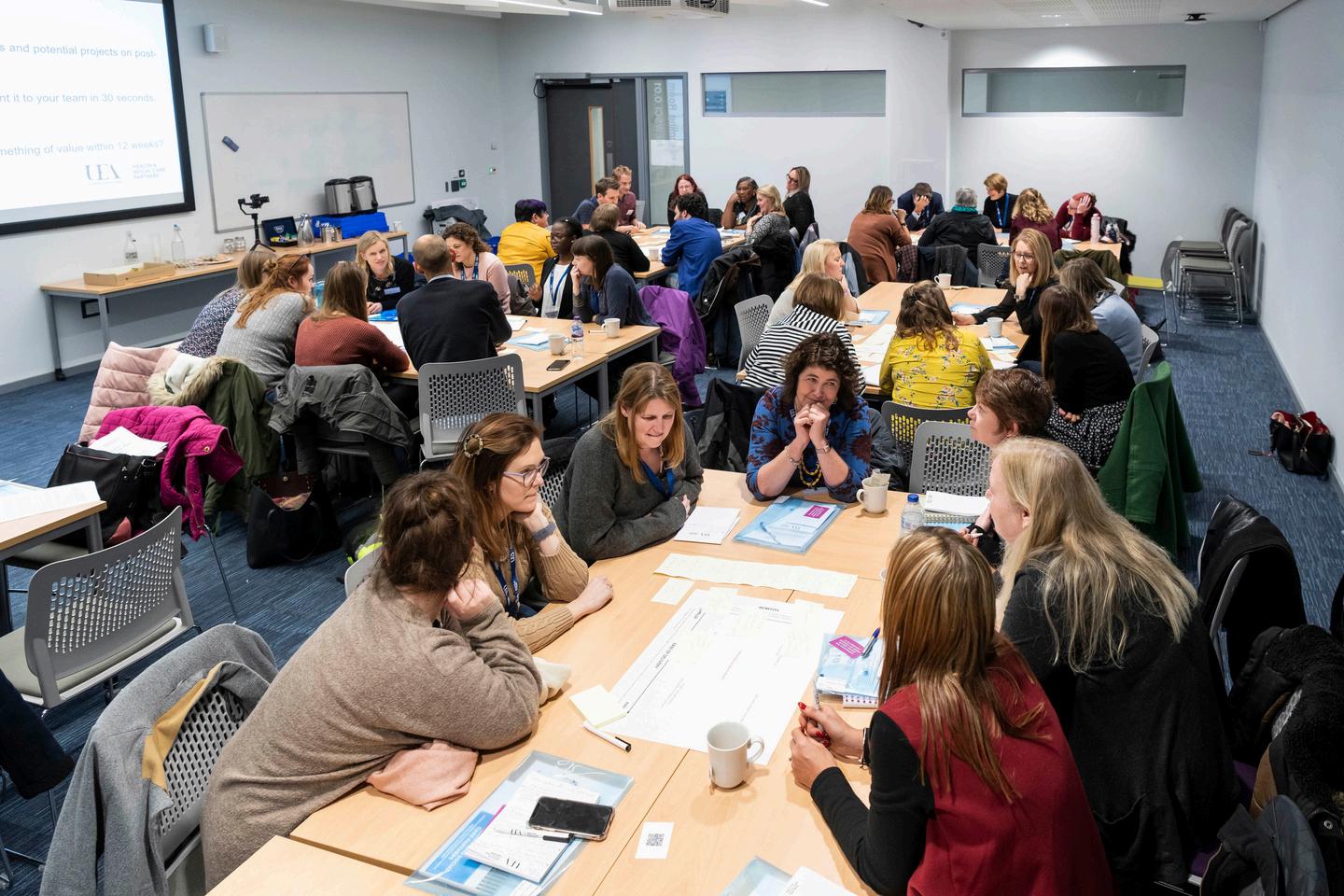
Parallel session #6

Session title: ‘Clacton’s Community Rapid Diagnostics Centre: A Service Evaluation’
Presenters: Dr Abigail Webb
Time: 11 00am -11 40am
Room: Purple room (0 05)
The Clacton Community Rapid Diagnostic Centre (CCRDC) is part of the nation-wide rollout of the Faster Diagnosis Programme, constituting coordinated, multidisciplinary diagnostic pathways for patients presenting with vague symptoms of cancer.
Services within the pathway include diagnostic capabilities and clinical expertise for scanning (including MRI, CT, X-ray), cardiorespiratory (including tape-fitting, EHO, EEG, lung function, pacing), and phlebotomy testing. We have developed a mixed-methods approach to gauge the perceived efficacy and value of the RDC according to service staff, service users or referring GPs
This includes primary data regarding the functioning of the service, qualitative interviews with service staff and users, and survey data for service users
This evaluation also has a special interest on the extent the CCRDC helps to promote accessibility to healthcare in the region, and as such can be used as a nation-relevant model for promoting equal access to services and care in communities.
6
Dr Abigail Webb is a Research Associate at ESNEFT and Clinical Research Fellow at the Institute of Health and Wellbeing, University of Suffolk
Her research interests include facial emotion perception, with a focus on psychophysical approaches, and inclusive systems for virtual reality. In her role at ESNEFT, Abigail is undertaking clinical service evaluations and exploring the impact of Parkinson’s Disease on effective facial emotion communication.
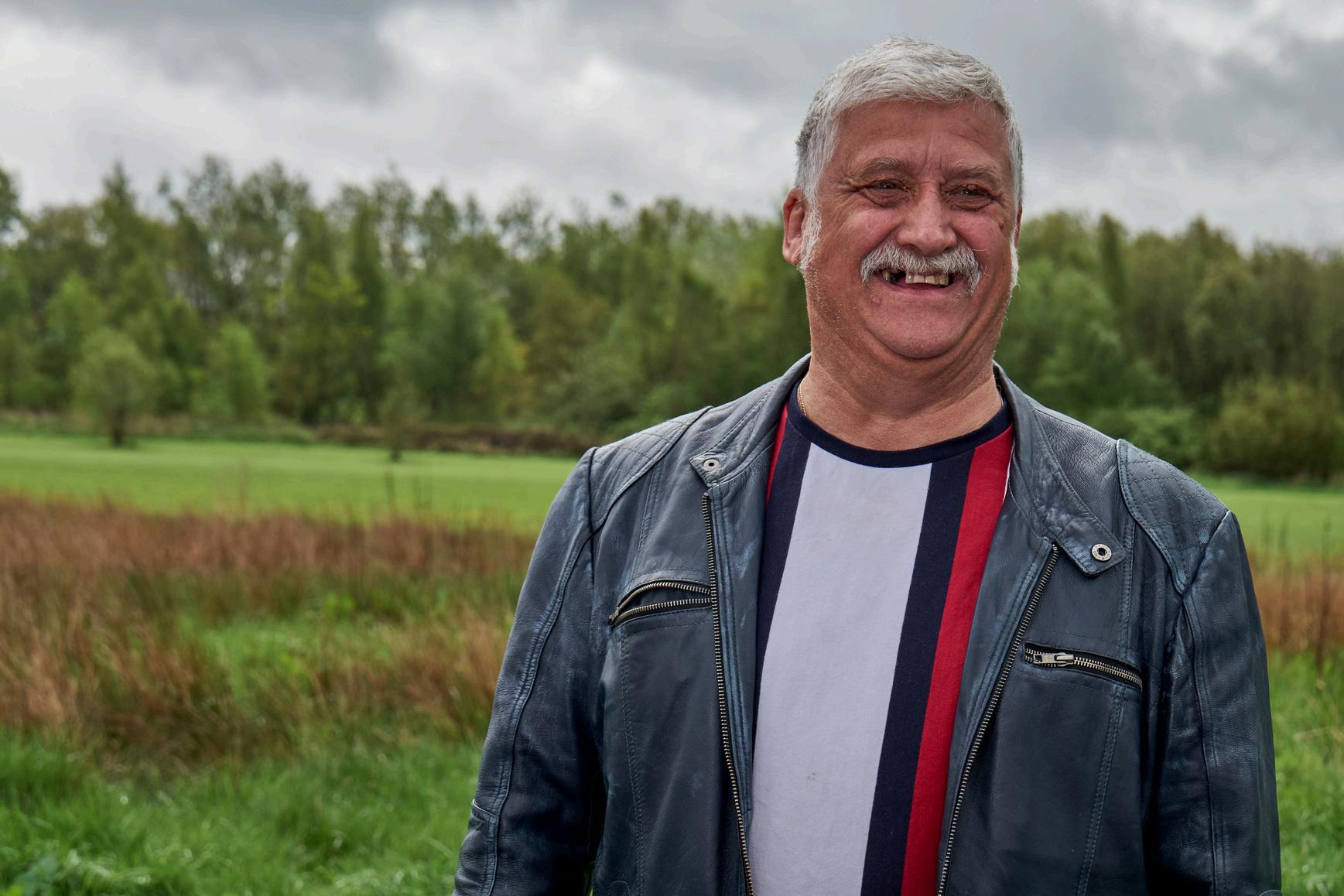
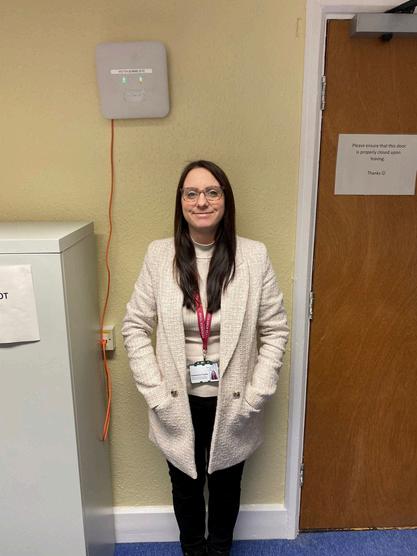
Session title: The PRAM journey
Presenter: Dr Katharine Fowler
Time: 11 00am -11 40am
Room: Red room (0 06)
Description: The PRAM study has been set up to explore people’s views of PeRinAtal exercise and its role for Mental health
This project consists of i) a perinatal patient and public involvement group, ii) exploration of local service provision, iii) healthcare professionals, and iiii) people with mental health needs views on perinatal exercise and its role for mental health. I will be giving an update on all 4 elements of the project.
Katharine has a PhD in Clinical Exercise Physiology, which explored the effect of perioperative exercise interventions on postoperative outcome measures Katharine is passionate about promoting active lifestyles, having seen the benefits to people having cancer treatments on quality of life and patient outcomes Her research experience has been diverse, from military research projects to perioperative optimisation
Noting that there was lack of exercise guidance during her antenatal classes and discussing with other people realised that there was lack of provision and guidance This has led on to her main research interest being in research surrounding exercise and perinatal mental health The hope is that this research can help a whole family; parents and baby, and throughout the child’s lifetime.
session #7
Parallel
7
Parallel session #8
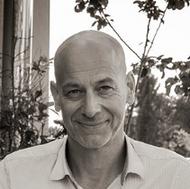
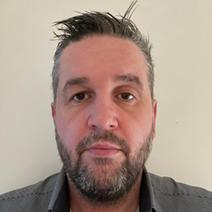
Session title: Charting Mental Health Pathways: Empowering AI Triage for Children and Young People
Presenter: Joseph Krasinski and Alex Church
Time: 11:40am – 12:20pm
Room: Lecture Theatre
Enhancing Children and Young People Mental Health Pathway Mapping in Norfolk and Waveney: Leveraging SNOMED Coding and the Thrive Framework Discover a Streamlined Approach for Accurate Assessment and Service Alignment.
Join us for an insightful overview of the innovative mental health pathway mapping in Norfolk and Waveney. We'll explore the effective utilization of SNOMED coding, a trusted UK and international standard, along with the Thrive framework, a comprehensive system-wide approach. Witness how this powerful combination simplifies needs identification and service alignment Gain valuable insights into how the integration of SNOMED coding and the Thrive framework lays the groundwork for AI-driven decision making in triaging electronic referrals, revolutionizing mental health care for children and young people
Our exploration of the work conducted in Norfolk reveals crucial insights into the challenges faced by the workforce, executives, and leadership teams when it comes to AI adoption A key takeaway is the need for enhanced education and cultural shifts to support digital transformation efforts.
8 CANCELLED
To drive progress in this area, a collaborative working group comprising clinicians and transformation teams has been established Their grassroots approach aims to develop a model that resonates with the existing system. This comprehensive effort includes:
Co-producing Inclusion/Exclusion Criteria: Collaboratively defining criteria to ensure inclusivity and exclusivity of services.
System Education on SNOMED Codes and Data: Empowering the system with knowledge and understanding of SNOMED codes and data
Implementation of the Thrive Framework: Introducing the Thrive Framework as a transformative system-wide approach
Evidence-Based Outcome Measure Collection: Utilizing reliable measures to detect and address mental health issues
CANCELLED
Triage/Assessment Framework: Establishing an effective framework for triage and assessment

With a background from education in mainstream and specialist settings, behaviour support teams, Healthy Schools and CCGs, Joseph Krasinki is an experienced independent consultant with a passion for driving positive change in children and young people's mental health and SEND services.
Through collaborative efforts with Integrated Care Systems/Boards, mental health providers, and multi-professional teams, Joseph has played a lead role in establishing and enhancing these vital services.
Joseph has designed and setup multi professional teams based around schools, developed VCSE services, whole school mental health framework, mental health curriculum for schools, Single Points of Access, Mental Health Support Teams and data flows
He has a thorough understanding of the Thrive framework, NHS reporting requirements and outcome measures, and has also written and delivered thousands of hours of training around behaviour management and social, emotional and mental health needs.
Recognised by the Department for Education for his "services to children, young people and families" for creating and leading mental health support in Leeds schools, Joseph has a strong and proven track record of providing effective and creative support and change.
CANCELLED
Know more and request support: https://www krasin ski/ joe@krasin ski
Most of Alex’s career has been focused on digital transformation, innovation and system transformation
This has been as a consultant, an SME owner, a leader on behalf of the system, and within the NHS It has been working independently, but also leading multi-agency, multi-disciplinary teams Alex was the Founder and Director of two health and care digital innovation organisations and a social enterprise.
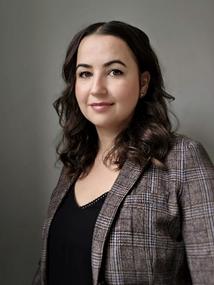
etter Sleep Programme: A sleep intervention for young people with mental health difficulties
Presenter: Ioana Tofan, Assistant Psychologist, Norfolk and Suffolk NHS Foundation Trust and Jude Hatton, Clinical Psychologist, Norfolk and Suffolk NHS Foundation Trust
Time: 11:40am – 12:20pm
Room: Blue room (0 01)
Around 60-70% of teenagers seeking help from mental health services report having significant problems with their sleep. We now know that sleep difficulties tend to precede and increase risk of later mental health difficulties but help with sleep is usually limited to medication and sleep hygiene advice.
We have developed a 6 session 1:1 intervention based on Cognitive Behavioural Therapy for Insomnia that is appropriate for young people with mental health difficulties and can be delivered by non-expert practitioners
We have found positive results in terms of both sleep and mental health outcomes (Rollinson et al , 2020; Rollinson et al , 2023 in preparation) We are now working across Norfolk and Waveney to raise awareness of the importance of sleep for young people and to train and supervise practitioners to deliver the intervention This project has been funded by UEAHSCP and Norfolk and Waveney Integrated Care Board.
Parallel session #9
9
Ioana Tofan is an Assistant Psychologist working exclusively on The Better Sleep Programme under the supervision of Dr Rebecca Rollinson, Clinical Psychologist.
She has played a central role in developing the resources and data collection procedures for the programme. She co-facilitates the training and offers peer support to newly trained practitioners. Ioana has worked in a range of mental health services as well as in clinical research trials as a data manager and has been with The Better Sleep Programme since 2020

Parallel session #10
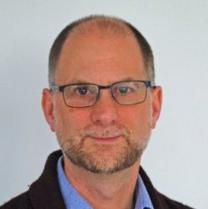
10
Session title: Brain Injury diScharge infOrmatioN project (BISON)
Presenter: Dr Michael Grey
Time: 11:40am - 12:20pm
Room: Green room (0 02)
Dr Michael Grey, Reader in Rehabilitation Neuroscience in the School of Health Sciences at University of East Anglia, is presenting on his funded project Brain Injury diScharge infOrmatioN project (BISON), which aims to develop an online patient-facing portal that will provide personalised gold-standard information about recovery following mild traumatic brain injury.
Researchers will work with Headway Norfolk & Waveney and clinical partner James Paget University Hospital to develop the portal, with input from across UEAHSCP clinical staff will refine and test the portal
Collaborators on this project include James Paget University Hospitals NHS Foundation Trust, The Queen Elizabeth Hospital King's Lynn NHS Foundation Trust, Headway Norfolk & Waveney, Norfolk and Waveney Acquired Brain Injury Network, Active Norfolk
Dr Grey obtained a PhD in Biomedical Science and Engineering He has held research appointments in Denmark, Finland and the United Kingdom and has worked in the field as an educator and researcher for more than 20 years He is conducting research to investigate how neuroplasticity can be
harnessed following acquired brain injury and how it can be used inform evidence-based neurorehabilitation practise
Dr Grey leads the Concussion Action Programme at UEAHSCP and sits on the advisory board for the Professional Footballers’ Association Brain Health Group.
On occasion, he can be found on twitter: @drmichaeljgrey
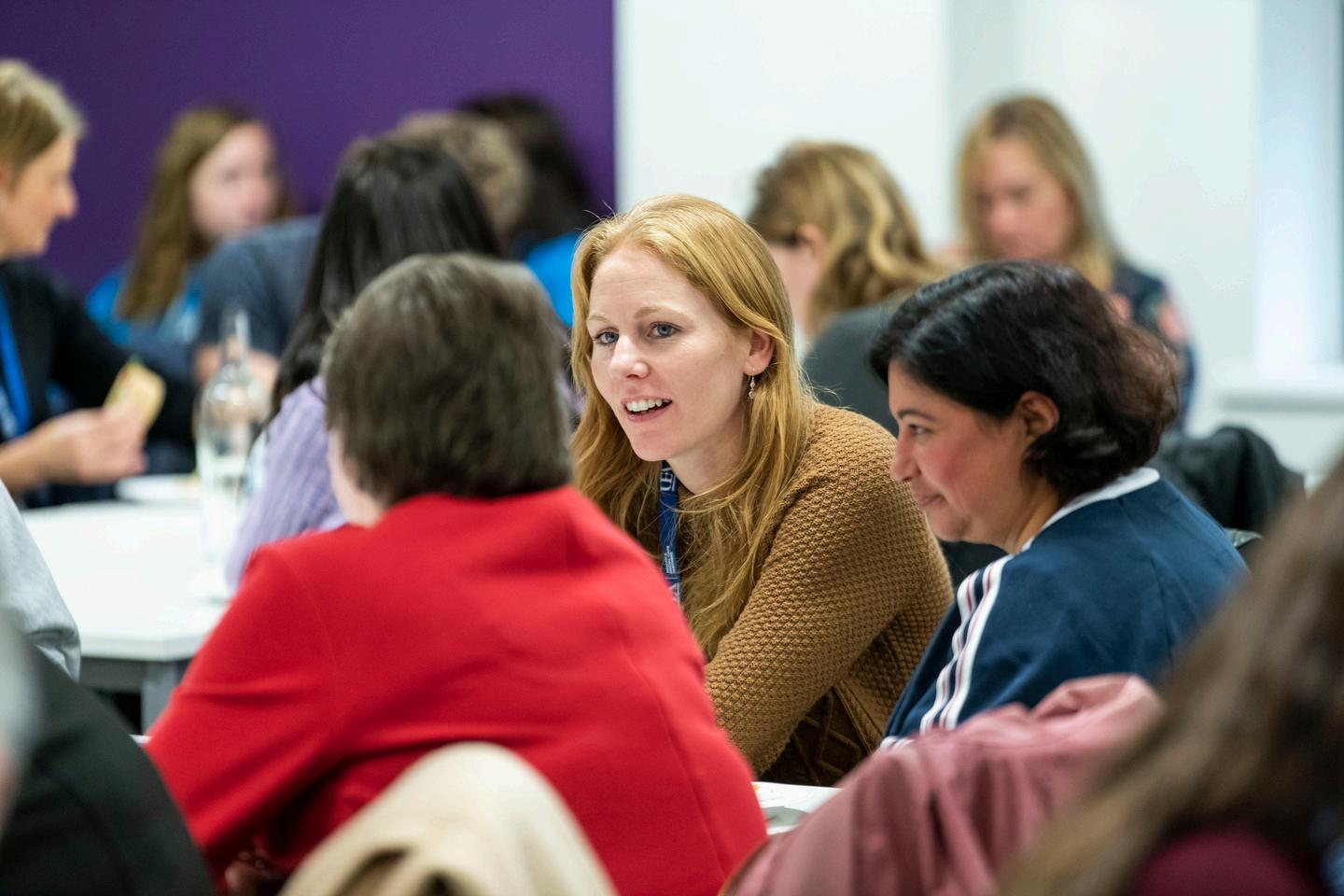
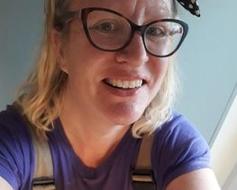
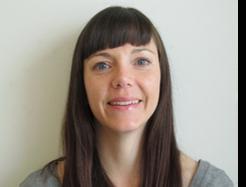
Session title: SUCCESS: The impact of patient and public involvement on a smoking cessation intervention development for deprived Coastal communities
Presenters: Anna Varley, UEA, and Dr Emma Ward, Research Fellow in the UEA Addiction Research Group
Time: 11:40am – 12:20pm
Room: Yellow room (0 03)
Coastal communities include socially disadvantaged groups that struggle to access traditional stop smoking services. Research shows that the most effective smoking cessation support includes e-cigarettes, intensive behavioural support, and financial incentives. However, these evidencebased approaches have only been tested individually, mostly within motivated populations.
In order to increase our understanding of coastal communities and the challenges faced by the population, we carried out patient and public involvement interviews with 25 residents of the Great Yarmouth area
We opportunistically spoke to people who used a range of services including mental health groups, social supermarkets, a community college and a migrant drop in We talked to people across the age range about their smoking and the interventions we proposed using to help them to quit smoking This resulted in an expansion of our ideas, which impacted on the design of our proposed intervention which we defined using the TiDieR framework.
Parallel session #11
11
Anna Varley is the Research Coordinator for the Citizens Academy She is an experienced researcher in health and social care and has worked on a diverse range of projects with themes including dementia care, telephone triage in GP surgeries, smoking cessation and sex work.
As a former social worker, she values the inclusion of people from all walks of life in research and teaching and is thrilled with the opportunity to meet as many new people as possible.
Dr Emma Ward is a Research Fellow in the UEA Addiction Research Group
Emma has twenty years social science experience and is passionate about helping to reduce health inequalities through research
She has extensive experience of managing research projects ranging from brief evaluations to process evaluations as part of large randomised controlled trials, to highly exploratory ethnographic and qualitative research. Her current research interests including tobacco smoking cessation and vaping behaviour.
Emma has extensive experience of working with people considered to be disadvantaged and ‘seldom heard’ and champions the involvement of service users in all aspects of research.
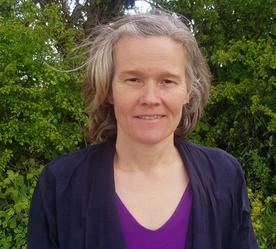
Session title: Primary care clinicians working in or near hospital emergency departments in the UK: A mixed methods systematic review and patient and public advisor feedback
Presenter: Julii Brainard
Time: 11:40am – 12:20pm
Room: Pink room (0 04)
GP at Door of A&E (GDAE) services are now routinely deployed at the 3 main acute hospital trusts in Norfolk & Waveney These aim to identify and treat patients who attended A&E but who might effectively be managed with primary care level services, to reduce pressure on A&E services.
Patients attending A&E are met by a GP who ‘streams’ them to the GDAE service or usual ED care. We undertook a mixed methods narrative systematic review about GDAE services in the UK. We summarised evidence about GDAE design, outcomes (both what was monitored and if there were benefits or harms) and GDAE design features
We also ran 3 PPI sessions to discuss with public advisors how we could approach patients waiting for GDAE services about their health care seeking journey We want to ask patients what their barriers were to getting health care elsewhere, why A&E was best option for relatively non-urgent health problems, without conferring stigma or judgement on their decisions.
Parallel session #12
12
Advisors helped us refine our question format and expectations The systematic review found that existing evaluations and studies provide little evidence that primary care services in or near emergency departments offers any system advantages for clinical outcomes, or cost savings.
Julii Brainard is a Senior Research Associate at Norwich Medical School, funded by the NIHR Health Protection Unit in Emergency Preparedness.
Recently she has researched ways to improve resilience in the NHS with innovative care pathway management, improved access to preventive healthcare, resilience and capacity building for NHS services
She benefits from prior experience working in NHS performance management and a history of collaboration with the Norfolk & Waveney ICB She is lead or co-author on over 20 systematic reviews considering aspects of health care, including interventions, risk factors and now, delivery models
Several of her recent articles are service evaluations, trying to find evidence for how effective potential service innovations may be.

Parallel session #13

Session title: Walk-A-Cise – Development of Virtual Supervised Exercise Therapy
Presenter: Philip Stather, Consultant Vascular Surgeon, Norfolk and Norwich University Hospitals NHS Foundation Trust
Time: 11:40am – 12:20pm Room: Purple room (0 05)
People with poor blood supply to the legs should initial have exercise therapy to try to improve their blood supply Unfortunately, this is only available in 40% of hospitals, with your local hospital potentially being 50 miles away.
Therefore, patients are often advised to walk at home, which has worse outcomes, and increases the need for surgery.
The aim of this project was to develop a mobile phone application to enable patients to undertake exercise therapy at home
A prototype mobile phone application is being piloted in Norfolk and Norwich University Hospital The first aim of this project was to spread the app across the East of England hospitals to improve the service and increase feedback on the app
Further funding from Innovate UK was secured to undertake app development. Funding from HSCP was also secured to undertake patient and public involvement and stakeholder engagement in the design of the
13
mobile phone application and clinician dashboard.
The prototype app is now in use in NNUH, Addenbrookes, Peterborough, King’s Lynn, Colchester and Ipswich, with paperwork ongoing in James Paget and West Suffolk Hospitals.
Two separate PPI groups and a stakeholder engagement meeting were conducted with the Cardiovascular MIC prior to starting app development, with feedback discussed with the development team.
Following 4 months of app development, a new Walk-A-Cise app was created This has the functionality of using GPS tracking to record total walking distance, distance to pain, distance to pause, time to pain, and 6 minute walk tests, all with graphical output In addition, patients can add addition exercise activity such as swimming
The app contains a messaging platform, the ability to add exercise videos and animated workouts that are in development, record medical history and medications, as well as undertake quality of life questionnaires. A second round of PPI and stakeholder engagement was conducted to further refine the user interface and add additional functionality such as smartwatch connectivity.
Funding from UEAHSCP has enabled the Walk-A-Cise mobile phone application to be developed using a patient centred approach, receiving excellent feedback from healthcare professionals and patients alike
Broadening the distribution of the prototype will enable smooth transition of the new app into these hospitals following regulatory approval, and subsequent spread throughout the NHS
Philip Stather is a Consultant Vascular Surgeon at the Norfolk and Norwich University Hospital, and a Clinical Associate Professor at the University of East Anglia.
He is currently the NIHR East of England CRN Surgical Specialty Lead for Research, Senior Editor of TeachMeSurgery website and app, an NHS Clinical Entrepreneur and CEO of Walk-A-Cise Ltd. He has a passion for innovation, and improving self-care for patients with arterial and venous disease.
He has previously set up the Vascular and Endovascular Research Network which now runs international collaborative studies, and was President of the vascular trainees’ society (Rouleaux Club). He has received approximately £3 million in grant funding, and published over 70 papers
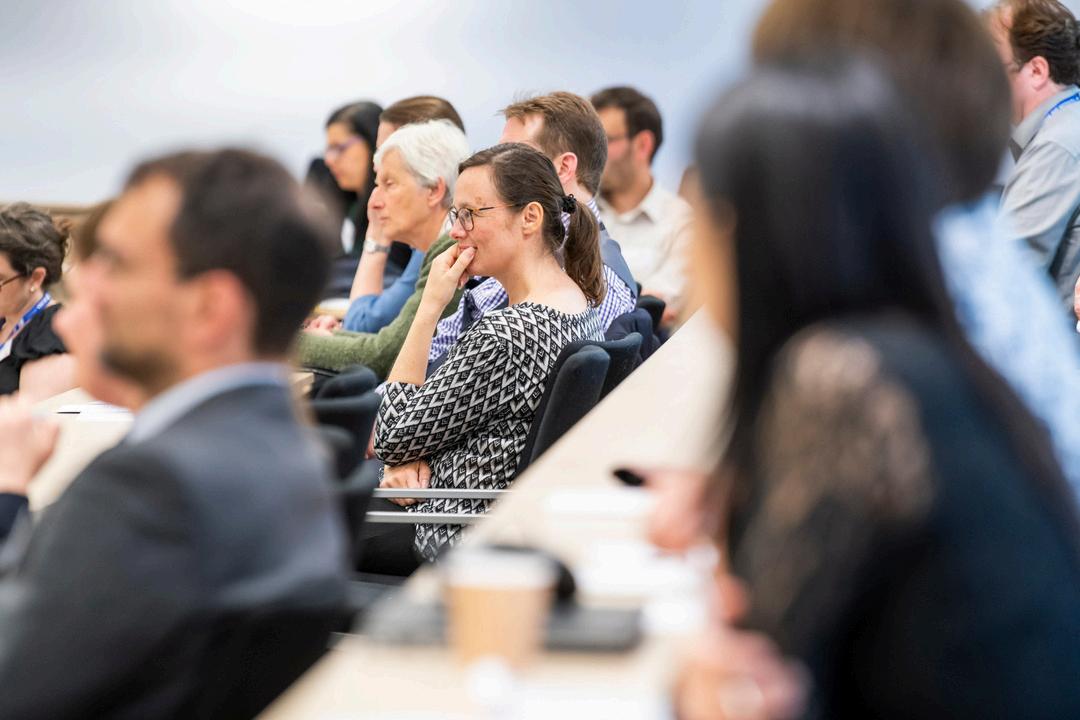
Parallel session #14

Session title: Answers: Understanding the post-pandemic needs of young people with mental ill health
Presenter: Dr Corinna Hackmann
Time: 11:40am – 12:20pm
Room: Red room (0 06)
Despite widespread research on how young people’s mental health has declined as a result of the pandemic, there is a lack of knowledge on what helps young people with their mental health in this time, especially from the perspectives of young people themselves
The focus of the current study is to describe what young people (aged 1125) feel supports their mental health and wellbeing in the post-pandemic recovery period, representing young people both nationally and based in Norfolk/Suffolk.
This will be achieved firstly through a literature review of what young people in the UK have reported helps their wellbeing since the lockdown, and secondly through focus groups with young people in Norfolk/Suffolk with mental health needs, exploring their views on what they feel would help their mental health with a holistic focus across all avenues of support in their lives
14
CANCELLED
Corinna Hackmann is a Research Clinical Psychologist at Norfolk and Suffolk Foundation Trust Corinna develops and conducts applied clinical research and is interested in research methodologies that both translate into real-world clinical service delivery and meaningfully integrate lived experience perspectives. Her research includes the areas of psychiatric diagnosis, peer support, autistic spectrum disorders, eating disorders and discharge from inpatient settings. Corinna is also interested in co-creativity, the arts and language.
CANCELLED

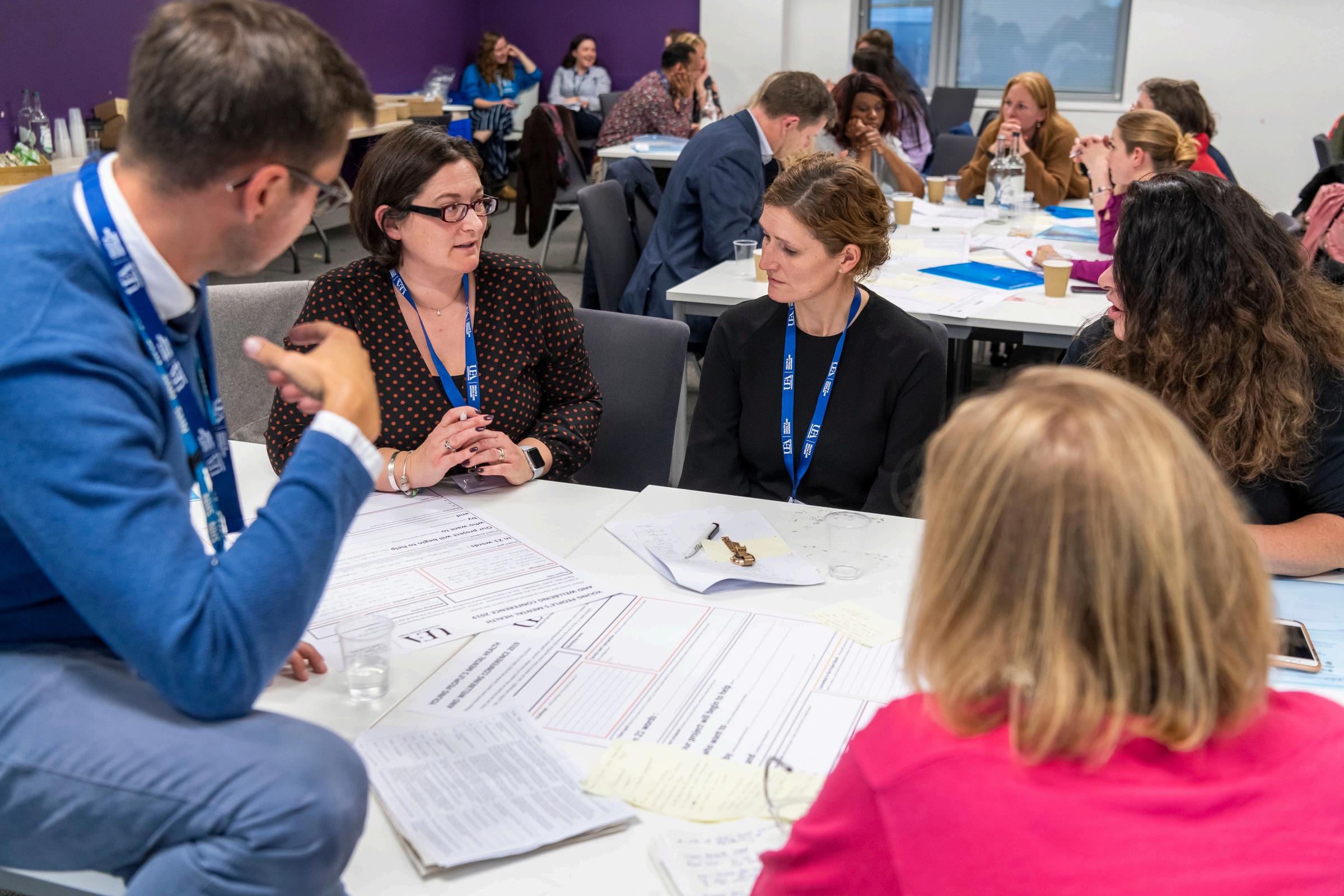
12.30pm - 1.30pm
Lunchtime Networking Event
Information Exchange Stalls and Poster Exhibition
Stallholders
Child Health East of England Research Initiative (CHEERI)
Citizens Academy
Community360
Health Tech Enterprise
Healthwatch Essex
Healthwatch Suffolk
Norwich Cancer Research Network (NCRN)
Norwich Institute for Healthy Ageing (NIHA)
Nurses, Midwives and Allied Health Professionals Research and Evaluation Service (NMAHP-RES) at James Paget University Hospital
Patient and Public Involvement in Teaching
UEA Health and Social Care Partners
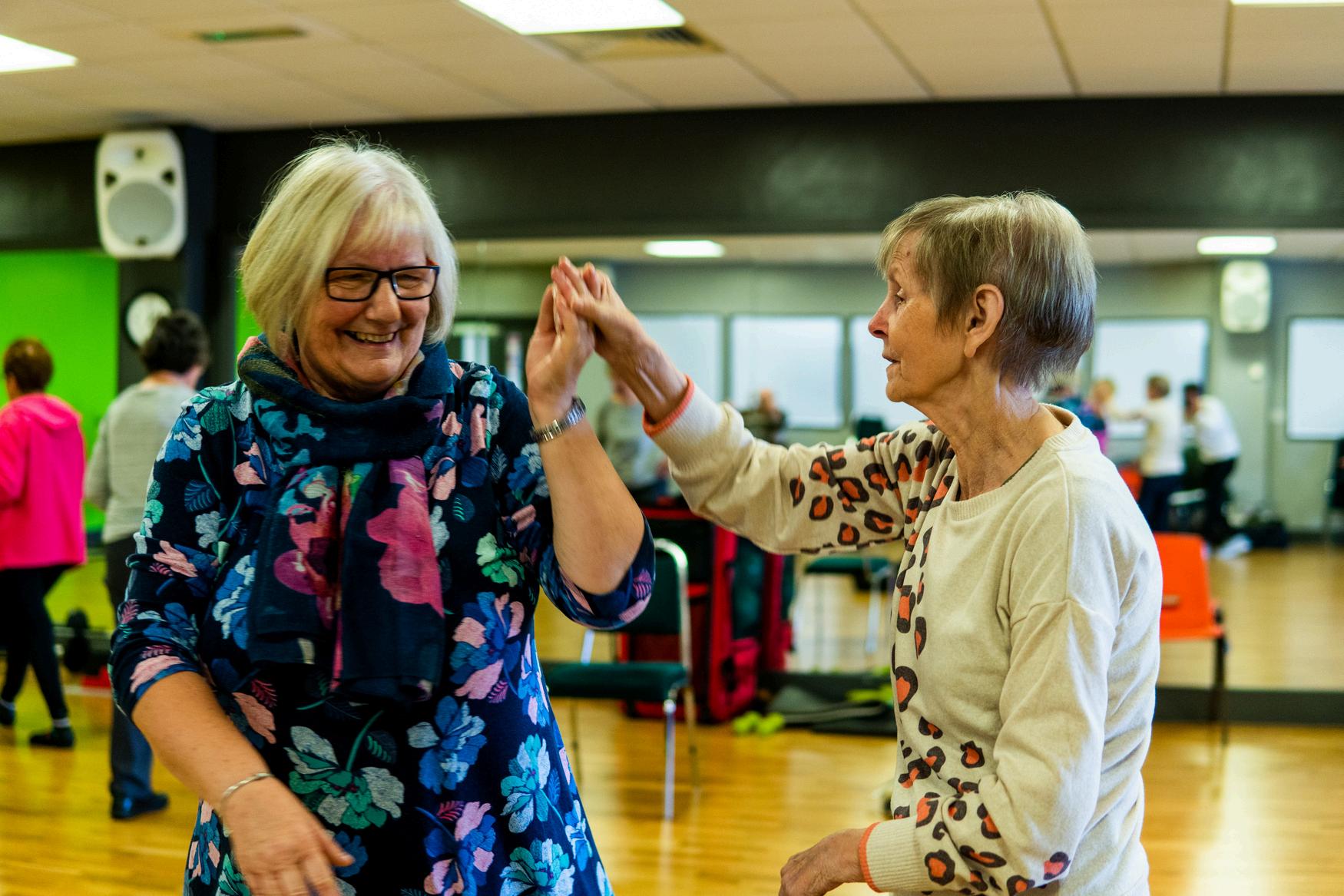
Posters
In the foyer, poster boards are being displayed showcasing over a dozen regional researchers who have received nearly £25k in catalyst scholarship funding from UEA Health and Social Care Partners. These scholarships provide health and care practitioners with the opportunity to conduct research and share their findings to enhance services for the local population.
The poster boards feature the following projects: Cathleen Chabo, East Suffolk and North Essex NHS Foundation Trust, Project: Inclusion Roma (INROM)
1 Rene Gray, James Paget University Hospitals NHS Foundation Trust, Project: Out Of Bed Project (OOBD)
2. Shyam Gokani, Norfolk and Norwich University Hospitals NHS Foundation Trust, Project: ExpRess
3. Jude Hatton, Norfolk & Suffolk NHS Foundation Trust, Project: Caring Well for Care Leavers (CWfCL)
4. Francois Kwong, Norfolk and Norwich University Hospitals NHS Found Trust, Project: MAchine Learning Across Multiple Sites (MALAMS)
5. Adam Peel, Norfolk Community Health and Care NHS Trust, Project: Infection Risk and The Impact of Managing an Indwelling Pleural Catheter at Home (TIM-IPC)
6 Mehar Shiju, James Paget University Hospitals NHS Foundation Trust, Project: Evaluating the Quality and Impact of Preceptorship Programme (EQuIPP)
7 Jonathan Yazbek, James Paget University Hospitals NHS Foundation Trust, Project: Reminiscence Interactive Therapy Activities (RITA)
8. Jemma Yarnton-Peacock, East Suffolk and North Essex NHS Foundation Trust, Project: Approaches to Supervision and Placements in Radiography Education (ASPIRE)
10.
9. Vasiliki Tsampasian, Norfolk and Norwich University Hospital and Norwich Medical School, University of East Anglia, Project: COVIDSPORTS
Citizens Academy projects
1
Sanjoli Mathur, Norwich Medical School, University of East Anglia, Project: Screen Sharing and Joint Editing for PPI Involvement (Smell Care)
2
Helen Parretti, Norwich Medical School, University of East Anglia, Project: Evaluating Antidepressants for Emotionalism after Stroke (EASE)
3
Anna Varley, Norwich Medical School, University of East Anglia, Project: PPI work to investigate usage patterns, practices, and appeal of disposable e-cigarettes in young people
Projects funded by Norfolk and Waveney Integrated Care Board Research Capability Funding
1.
Project team: Will Riley, Sarah Cheal, and Tom Bamford (Norfolk Community Health and Care NHS Trust), Laura Watts (Norwich Medical School, University of East Anglia), and Jane Cross (School of Health Sciences, University of East Anglia) Project: GP High Intensity Users (GPHIU)
2
Principal investigator: Ailsa Welch (Norwich Medical School, University of East Anglia) Project: Developing the EAMIT (East Anglian Malnutrition Identification Tool) for earlier identification of malnutrition in the community


Parallel session #15

Session title: Involving young people in health and social care research - a case study
Facilitator(s): Dr Jeanette Cossar
Time: 1 30pm – 2 30pm and 2 50pm – 3 50pm
Room: Blue room (0 01)
This workshop will consider the process and impact of involving young people as coresearchers
The workshop will draw upon an ESRC/CLAHRC funded project looking at the experiences of LGBTQ+ young people growing up in the care system in England (2014-2018).
CANCELLED
The research involved a team of seven young researchers and the workshop will consider the impact of the young researchers on the process and outcomes of the research, as well as the benefits and challenges of coproduction
The workshop is facilitated by an academic researcher (Dr Jeanette Cossar) and one of the young researcher team (Jack Smith) Both Jeanette and Jack will also draw upon their wider experiences of involvement in research, in particular the move to online working during covid 19 and afterwards
The workshop will be hybrid, with Jack joining online and Jeanette in person.
15
Dr Jeanette Cossar is Associate Professor in the School of Social Work at UEA
Her research centres on the experiences of young people of social work services, particularly young people involved with child protection and care experienced young people.
Jeanette has worked with teams of young researchers across several projects. She sits on the NSPCC ethics committee, which involves considering involvement of children in research both as participants and as researchers She has an interest in creative methodologies including film
Jack Smith was born in 1995 in the middle of winter Following his birth, he encountered domestic violence and drug use, ultimately leading to his placement in care at the age of 4
Jack spent time in foster care, secure environments and residential children's homes. When he left care, Jack wanted to do something to change the system for the better and he has been involved in several projects involving research on children and young people in care and people with lived experience of mental health, the justice system and social care services.
CANCELLED


reventative and remedial role of arts and culture in patient and population health & wellbeing
Facilitator(s): Lucy Bayliss and Natalie Jode
Time: 1 30pm – 2 30pm and 2 50pm – 3 50pm
Room: Green room (0 02)
It’s a fact, creative participation improves patient and population health and wellbeing – now what?
Join this lively discussion focused on transforming patient health outcomes through access to creative interventions and the cross-sector partnership work that’s required to achieve this.
The workshop will review evidence of health impact, highlight local practice across Norfolk and Suffolk, and invite delegates to contribute to a region-wide consultation on the role of creativity for patient and population health and wellbeing Head of Creative Programmes at DanceEast, the region’s dance development agency based in Ipswich
Lucy oversees the delivery of a range of artist development, participatory and creative health interventions, including Dance for Parkinson’s, Moving Minds, Movers classes for the over 55’s, Tots & Co, and Care to Dance and Dance from Home - Dementia-inclusive programmes for people living in care or living independently in the community
Lucy.bayliss@danceeast.co.uk
16
Executive Director at Creative Arts East, an arts and development charity working in rural communities across Norfolk, Suffolk, and Cambridgeshire.
Programmes include creative health workshops and afternoon performances for lonely and/or vulnerable older people, including those living with a dementia or other life limiting illness, and their carers.
natalie@creativeartseast.co.uk
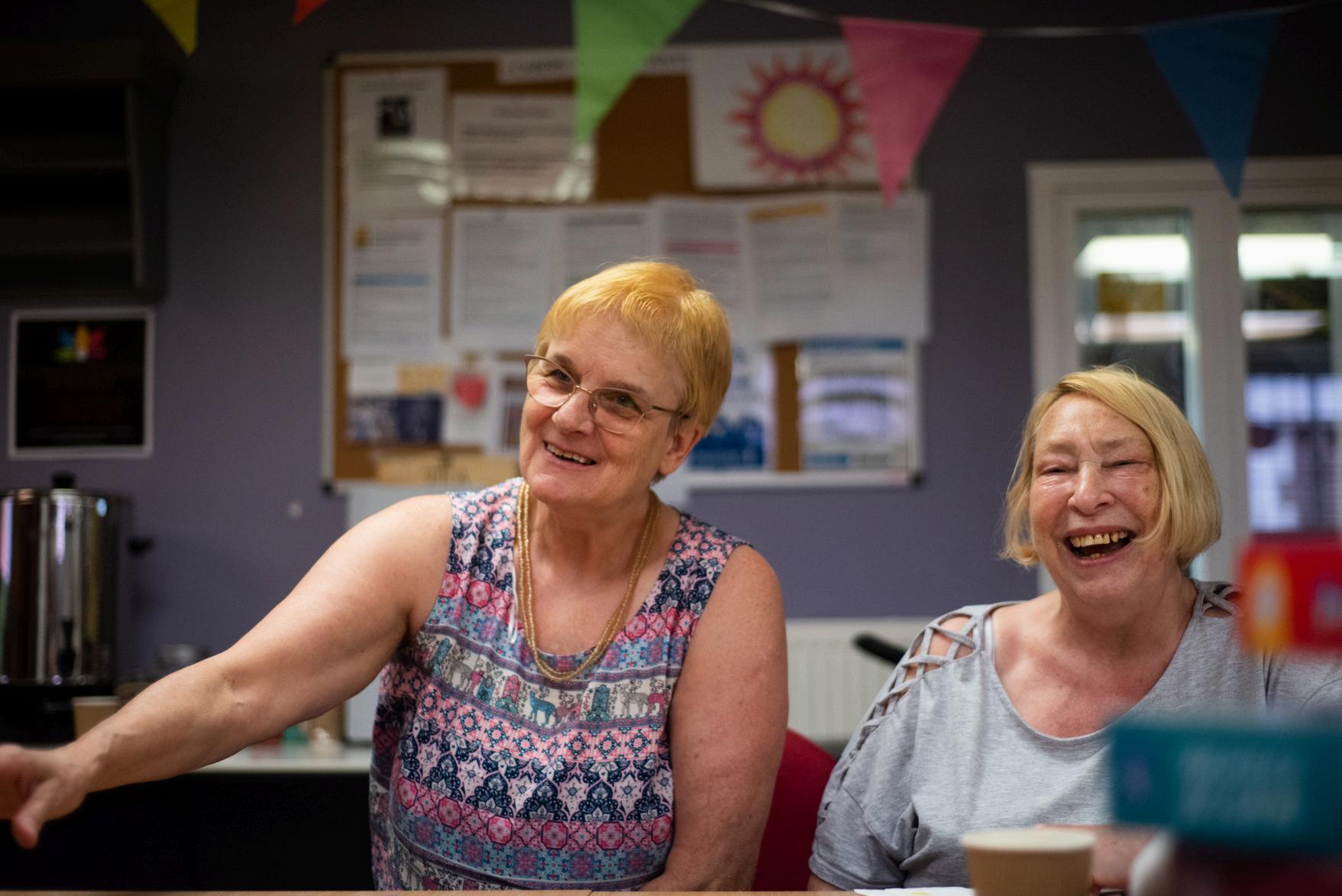
Parallel session #17


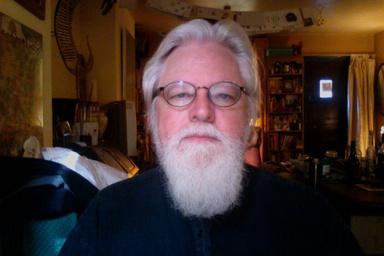
Session title: PPI: Prio , nd Best Practice
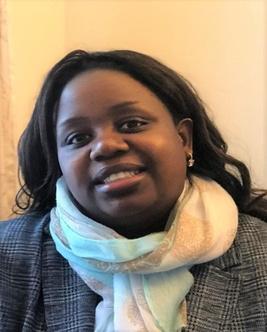
Facilitators: (clockwise from top left) Caitlin Notley, Anna Varley, MarieLyse Numuhoza and Jeremy Dearling
Time: 1.30pm – 2.30pm and 2.50pm – 3.50pm Room: Yellow room (0.03)
We will take you on a whistle stop tour of the practicalities and pitfalls of patient and public involvement in research.
Major funders such as the NIHR have made clear the expectation that members of the public should be meaningfully involved in research and that this should be clearly explained in funding applications
We will talk you through the value of embedding meaningful PPI at all stages of the research cycle We will present the UK standards for involvement and how they can help researchers and discuss what ‘best practice’ looks like
We will also be asking you to think about case study research projects and how you would involve PPI if you were designing the study. There should
17
be plenty of time for feedback and for you to share your own experiences and discuss key issues, enabling us to take forward learning into our PPI work in the future
Caitlin Notley is the Director of the Citizens Academy. As a social scientist, she has worked with patients, carers and members of the public throughout her research career.
Caitlin's research focuses on addictive behaviours, currently tobacco addiction and harm reduction approaches. In all of Caitlin's work, people who smoke have been central to informing study design, conduct and dissemination
Working to lead the Citizens Academy was a natural progression for Caitlin, who is deeply committed to the values that drive the Citizens Academy
Anna Varley is the Research Coordinator for the Citizens Academy She is an experienced researcher in health and social care and has worked on a diverse range of projects with themes including dementia care, telephone triage in GP surgeries, smoking cessation and sex work.
As a former social worker, she values the inclusion of people from all walks of life in research and teaching and is thrilled with the opportunity to meet as many new people as possible.
Marie-Lyse Numuhoza has been an expert by experience with the School of Health sciences since 2016 and was instrumental in the establishment of the Citizens Academy
She regularly contributes to teaching, particularly within the field of migrant health and also engages with research studies when she has the opportunity Marie-Lyse is a firm believer in the power of a collaborative approach between research and communities and works to be a bridge
between them The aim of this is to enable the community to influence the policies and services which meets these communities’ needs
Jeremy Dearling has been involved in supporting research at all stages of the research cycle for many years. He began his work in the field of Patient and Public Involvement (PPI), following a life changing critical illness.
He has a plethora of experience including, being a key member of research studies as a PPI representative, reviewing funding applications, and contributing to teaching and learning
He is keen to support the University at every opportunity he can and encourages others to get involved on the basis that he finds this work both rewarding and fascinating
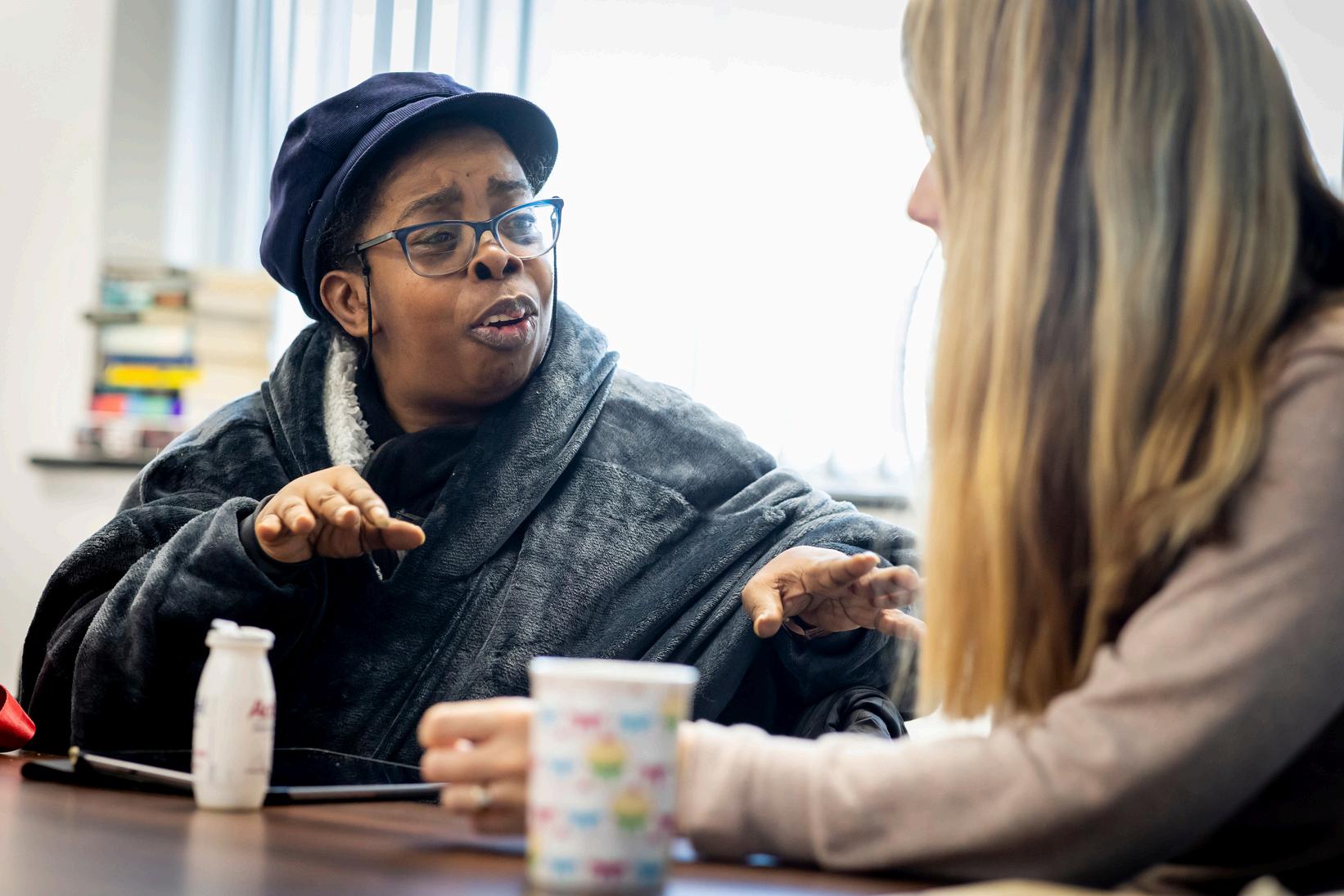
Parallel session #18
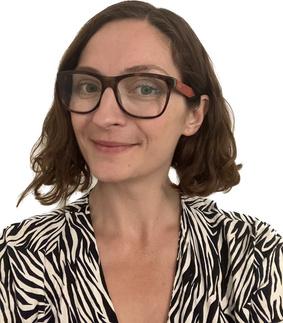

Session title: Community engagement in research
Facilitator(s): Dr Clara Yates and Katy Rutherford, Director of Programmes and Insight from Norfolk Community Foundation (NCF)
Time: 1 30pm – 2 30pm and 2 50pm – 3 50pm
Room: Pink room (0 04)
Research should reflect the communities which will ultimately benefit from it, we know that this is not always the case During this session you will hear about an NHS England initiative to increase the diversity of participation in research.
A group including both Norfolk and Suffolk Community Foundation, the Integrated Care Board (ICB), the Clinical Research Network East of England (CRN EoE) and the University of East Anglia were awarded £92,000.
VCSE organisations in Great Yarmouth and Waveney, as an example of a diverse coastal community, received funding so staff and volunteers could have ‘Research Ready Communities’ and Community Voices’ training
This enabled conversations about research to take place within communities, led by those who know them best We will present the results of an evaluation of this approach and invite you to work in small groups together to help us design how we spread this across Norfolk and Waveney.
18
Dr Clara Yates, Associate Director of Research, Norfolk and Waveney ICB clara yates@nhs net
Clara leads the Research and Evaluation team and NHS Norfolk and Waveney ICB. The team focus on supporting the development, submission and management of research applications which have a focus on out of hospital, community and non-NHS settings.
The team also support those designing and commissioning health and care services to access the best evidence and to evaluate outcomes, with a focus on continuous improvement Engagement with our population and communities is a cross cutting theme and led by our Community Engagement Co-ordinator
Katy is Director of Programmes and Insight at Norfolk Community Foundation She leads the Foundation’s work on insight and impact, working closely with the team to oversee grant programmes
Before joining the Foundation, she was Head of Innovation at Norfolk County Council, using new ideas, methods and funding to improve local services.
She also spent nine years leading grant programmes at the Innovation Foundation, Nesta, and worked in policy and strategy development at Westminster City Council and the Local Government Association
Parallel Session #19


Session title: Building an accessible and inclusive research network, facilitated by Healthwatch Essex
Facilitator(s): Dr Kate Mahoney and Bethany Pittuck
Time: 1 30pm – 2 30pm and 2 50pm – 3 50pm
Room: Purple room (0 05)
Healthwatch Essex are an independent charity that was set up under the 2012 Health and Social Care Act to use the voices of Essex residents to improve health and social care across the county
In January 2023, we founded the Healthwatch Essex Research Ambassador Network – a scheme that invites individuals with an interest in health and social care, qualitative methods and lived experience to volunteer with us to gain experience conducting research in a charity.
The Network is open to anyone, regardless of educational and professional backgrounds Through a series of interactive activities, this workshop will showcase the aims of the Research Ambassador Network, chart its successes, and demonstrate some of the challenges that we have faced during its development
Incorporating the reflections of our Research Ambassadors, we invite workshop participants to consider how lived experience research can be made accessible and inclusive to all
19
Dr Kate Mahoney is the Research Manager at Healthwatch Essex She completed her PhD on the history of feminist mental health activism at the University of Warwick and has worked on women ’ s everyday health, period poverty, student wellbeing, and lived experience research.
Her next monograph Feminist Mental Health Activism in England, c. 1968-1995 will be published by Manchester University Press in 2024. Kate and her team are committed to developing inclusive, accessible, and academically rigorous research projects that foreground Essex residents’ lived experiences of health and social care
Bethany Pittuck is a Research Officer at Healthwatch Essex She completed her undergraduate degree in Psychology at the University of Greenwich and is currently working to publish her dissertation on the behavioural responses to COVID-19
She has previously worked on research projects exploring staff wellbeing, the thoughts of early career stage psychologists and produced graphical insight reports to identify behavioural trends in children with complex needs.
Beth is keen to develop her skills as a researcher and has been committed to learning a range of qualitative research methods. She will be using her knowledge to conduct her own observations and interviews exploring frontline staffs’ perspectives on participatory methods within healthcare

munity360 - Insights and impacts from VCFSE-led place-based partnership working
Facilitator(s): Louise Willsher and Les Nicoll
Time: 1 30pm - 2 30pm and 2 50pm - 3 50pm
Room: Red room (0 06)
Description: How can we more successfully support people to recover at home and avoid a prolonged hospital stay?
How can we ensure that neighbourhoods participate effectively in decision-making about the future of infrastructure in their place?
How can the diverse voices and experiences of local people be better integrated into system working? – These questions reflect some of the complex realities of working in place faced by health and social care systems.
Community360 (C360) is an established, charity and anchor organisation, based in Essex, which develops collaborative, timely and innovative responses to system-wide challenges by embedding an Asset-Based Community Development approach, shaped by citizen-led intervention
Hear from members of the team at C360 in an interactive workshop that will use three case studies of current work to explore how building relationships with Voluntary, Community, Faith, and Social Enterprises (VCFSE) can influence change.
0
20
Louise Willsher’s role is Strategic Head of Innovation and Growth at Community360, a charity based in Essex Having initially joined the organisation as a volunteer, she has worked for Community360 for over 17 years.
She has specialised in developing programmes within place that target improving the sustainability of voluntary and community organisations and improving health and wellbeing outcomes for citizens.
Her work has included implementing a pilot Place Based Social Action project for enhancing a Dementia Friendly Community, developing Timebanking across Essex, supporting partners to establish new social prescribing programmes and building relationships between academic institutions and the voluntary sector
She has chaired the Delivery Board of the local strategic partnership, One Colchester and worked extensively within regional networks to develop collaborative working.
His parents moved the family out to Harlow New Town in 1955, where they had a house with an indoor toilet and bathroom and - best of all - a garden. With Harlow being a New Town he benefitted from going to a great school, Burnt Mill Comprehensive, with gifted teachers he still remembers today over 50 years later.
Les developed a passion for sport, especially rugby, playing at representative and county levels throughout school and in his club days In line with the deep-rooted working class traditions within his family he left school at 15 with no qualifications and joined the Essex County Fire and Rescue Service in 1970 serving as a firefighter, crew and watch commander
Although Les retired from active service in 2006 he has continued to work for the Fire Service in the community, and 2nd January 2020
marked his 50 years of service
Highlights of his community career have been being shortlisted for Guardian Public Servant of the Year, and the Pride of Britain award –although it must be said that both times he was the bridesmaid and not the bride. He was awarded a British Empire Medal (BEM) in the 2020 New Year’s Honours list.
Les has worked with Community360 for some years within his community role and enjoys being on the Board.
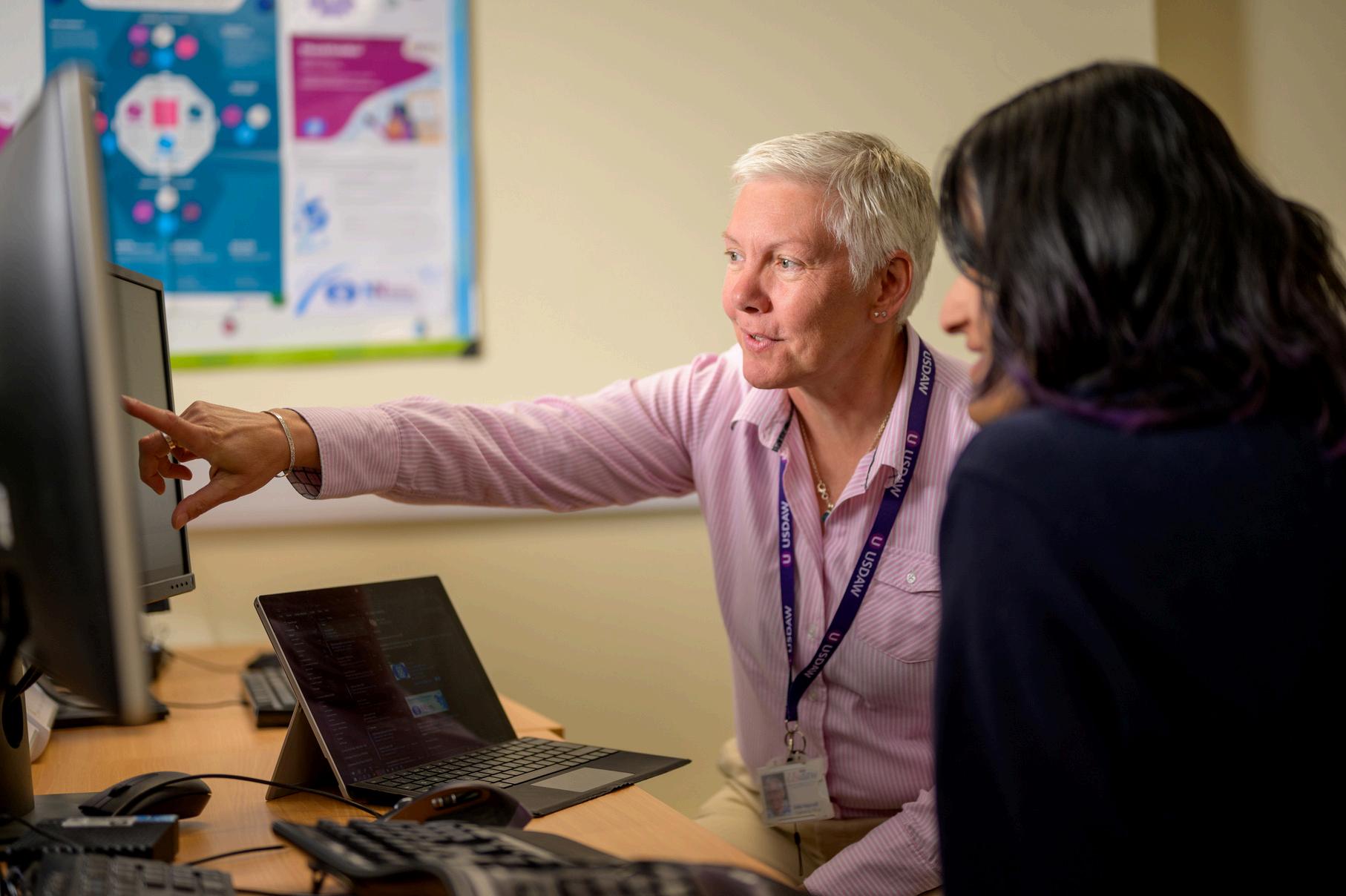
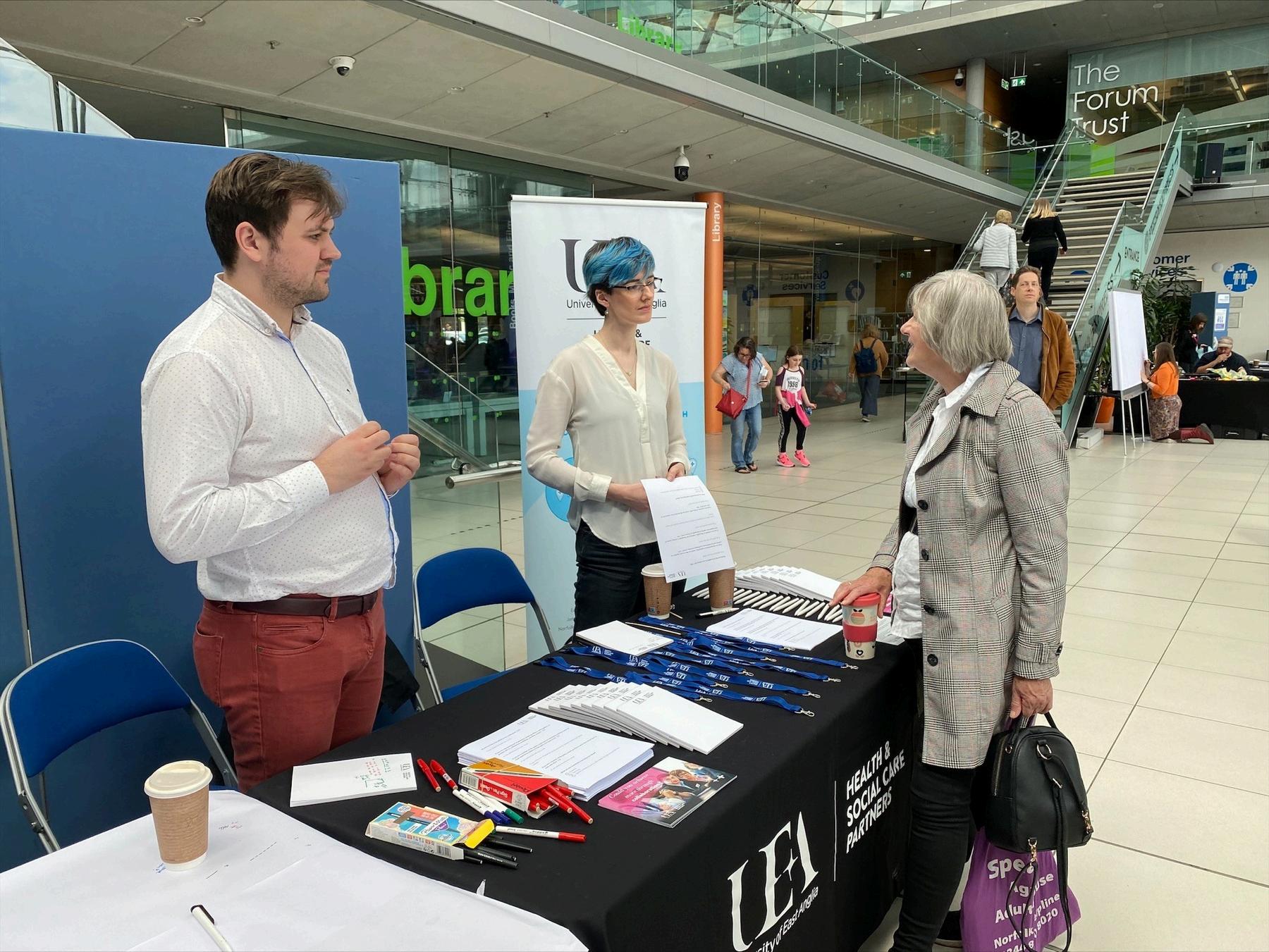
"It is also important for the public to be involved in research because research should be democratic and transparent. It is not enough for research to occur behind closed doors.
Unless the public is included in these conversations, the accountability of how research is conducted and whether it is a good use of public funds can be lost."
Jeremy Dearling
About UEA Health and Social Care Partners
Are you a practitioner, clinician, citizen, or academic researcher working in Health and Social Care? We can help maximise your research impact.
Together we fund citizen led early-stage research and innovation projects that transform the quality of our services, our workforce, and the lives of the communities we serve; and develop networks and ensure meaningful, sustainable patient and public engagement, focusing on key themes:
Population Health Management, reducing inequalities and supporting prevention
Improving Mental Health
Management of long-term conditions and multimorbidity
Improving integrated urgent and emergency care
Healthy ageing
Learning disability and autism
Workforce development and sustainability
Advances in technology and medical science to improve care delivery
Children, Young People and Family health and wellbeing
Palliative and End of Life Care
Cross cutting themes include economic evaluation, organisational and system transformation and co-production methodologies
Our partnership is expanding the region’s capacity for high quality collaborative research and innovation to address the most pressing challenges affecting our population health and wellbeing Get in touch with the team today to see how we can support your research ueahscp@uea ac uk or visit our website ueahscp com
Our Partners
East Suffolk and North Essex NHS Foundation Trust
James Paget University Hospitals NHS Foundation Trust
NHS Norfolk and Waveney Integrated Care Board
NHS Suffolk and North East Essex Integrated Care Board
Norfolk and Norwich University Hospitals NHS Foundation Trust
Norfolk and Suffolk NHS Foundation Trust
Norfolk Community Health and Care NHS Trust
Norfolk County Council
The Queen Elizabeth Hospital King's Lynn NHS Foundation Trust
University of East Anglia
West Suffolk NHS Foundation Trust
Our Associate Members
Cambridgeshire Community Services NHS Trust
Community360
East Coast Community Healthcare CIC
East of England Ambulance Service NHS Trust
Eastern ARC
Health Tech Enterprise
Healthwatch Essex
Healthwatch Suffolk
Integrated Care 24
Norfolk and Suffolk Culture Board
Norfolk Green Care Network
Benefits of Associate Membership
We have strong collaborative networks with a wide range of research funding bodies, and organisations working together across our region to improve health and care services
We have a wealth of expertise at our fingertips to enable you to gain access to and support from leading academics, researchers and practitioners as well as sharing and cascading best practice, new evidence and innovations
We hold frequent webinars, conferences and events to connect people with ideas to people who can help develop these into real world projects with impact.
We welcome inquiries from community and voluntary sector organisations applying either as individual organisations or as consortia.
Visit out website ueahscp.com or email the team at ueahscp@uea.ac.uk.
About UEA Citizens Academy
The Citizens Academy, based within the Faculty of Medicine and Health, represents a coordinated approach to involving members of the public, patients, and experts with relevant experience across all aspects of teaching and research.
The academy seeks to work collaboratively with existing structures for patient and public engagement and involvement (PPIE) not just across the faculty, but also beyond, by collaborating and supporting the work of PPIE within trusts, voluntary organisations and charities that we regularly partner with The Citizens Academy aims to provide a central ‘hub’ to bring together PPIE activities including recruitment of members, training resources, mentorship, and also taking a coordinated approach to aspects such as payment policy and good practice guidelines
The Citizens Academy is led by Professor Caitlin Notley, working with PPIE leads across the faculty Caitlin welcomes all enquiries and is looking forward to working collaboratively on this exciting and innovative new faculty venture.
At the heart of the Citizens Academy is our shared desire to ultimately improve health education and research, by involving and engaging with members of the public and patients in everything we do.
Get Involved
If you are interested in learning more about the Citizens Academy, to get involved in our work, or to find out how we can help you, contact us at citizens academy@uea ac uk



























































